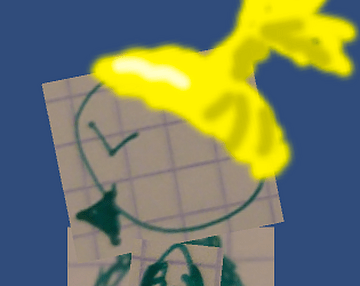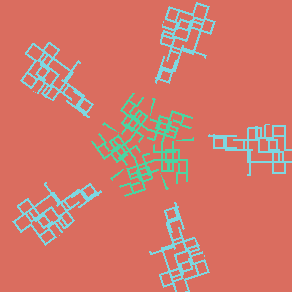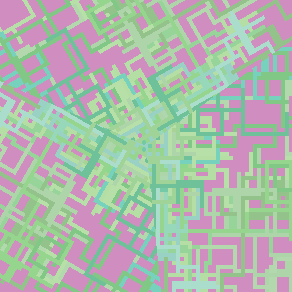2020-04-09
shzKzkzcm4ebW+Woolj6pQ==
$4AvU0tiKWi3p6aD+hheYwEgdIY+DyY8dxWPgXmUG3iysRiPoAMRioRYSygBz
SLeyxlmy/485dsNq0Gh4CVbBY2wRBhkz6hc1OixYm28bBt3kgWsbvJlKqqhn
IFq4NCIAgJpXmErn2uFCPghsEGFee+gIZqnTgKT6HOIj7rrgrJYQzQwDo5gw
opuZc0py5VAxY77KcC02u+FgUdmVZHi/oneqnX/fJ8aGVAwCegzZ9CFK5FHR
mmXuyMRIN95odC7PeEXfI1U5hTh2bh2PnkPwJnDiPcWaRTw01eYF+dMn90T5
8lqh44o1WT63FF0x32vwO0sTg4J1og1U29UhGophI37w2hllcz9EXkt1HGYv
DHVQboHIaDfd3vvDv/92PelzBgKfu9Cj6JKncDTpdrcRymj00IugSrITniKs
LMsNu7aUVjC3ngLwxXYiX6N6Dc0oWnYe/NU82Cx8iNGbmTMoNXt0lFFyL4gk
4/S1c5cim7WuPP9kN9WggfkcIMRVUC6AQVZD8PKKIY1vS589dLrkHnLzpzxH
u8fiVdwvoc8kQbeFUSMeFtNMS6nn36odePvfbBnwVGkEkYRUmUAJvLAFtglA
N4hBMFC/skYSozdjseOScknuK5fyUpVWSTC19PNtBvW9MbHQJaNarGP7+lED
446u9ggYywB3TghIoX1BST/IEfSQBYCh5p42CWtokTrumQXUQmf6+HqiwW4w
VLJvG4IjUGBY8tjSjZDlLZgGtwhZ/KUDNe5RzgmpSPdMTiTj2XVgbXuaJ0Dz
qGWWV5fLTlsMF2d7PSICAjoNCRi6HiUKYqUiJqyMNTfPgleX+wbbNYHezYCo
X+DIVqkvCU0KNl4UVyTpu4Mk+SabjY2KkojcYkF8zHs2Lxs2O51dDPF5O9b3
se/CAlK0oPW1S5qzhvDqFo/x6kE3ahhc2ZMOjwXDwI3jCV51wPUWDeUMnwrq
BiJD3lJlZpFKiQwxmpwejqoG4ayhcaTbtZ8cchR32qoWcz1Fec4Ej8tUm0OM
p10DXRoKcJBUZEscYRiNbpMhhcT9RjRqhCJdKu2a3XXXEZjClXxdUZIqp33W
zk5xOG3LXZwKE4egRE3YQWR5LsxgRJNPGPuKNNBazt1sK9ujmYmYDCyujYBq
Y4L2vfcRQHlLkkD/LGdiRnuBE4kHvhyNHZ5tSCfHPDRnVt5FdQ8NvFdcoBtb
WpTayGMy+Knh9LEvPk8Am097vWH8yClVSv2ThS/PAAEhVifMQ+R+mQG+GmFf
NxD6jbiNSjfqq8R955a4rQtF3h4YhCMKpG7hk/LLIcZm2wHYVx0QlgsW6pl4
hGvnRLBKbPIzaBTNjk0kD/yEm12M9nzYVAwF5VXAU3Rs0eWWEphEhbNkblrI
CGoMIKHnWcMSXofuOTHK8luAwFLGPyilOamHDIBjU/9Lz4CdytpccTZtrT6T
goJDu4iGR+UDlKAqWsnDNQn7U+DMO6b9kpwU37mIknaX5TeuTFlXLzuevuTQ
Hkt2t/n6Yf7raxPtHMVWtAnYHWU/2LLw9Q9J2Msglqgm1Hd2HciDfuWzRM51
78kehMXDb5+ONYBa1h7PqlaWJ3oJEyZ2XZUrPHMLgIAco2CP+DT5TD5aiKlc
mIGbK5mVjsUNj5aUBbScgDPDDuvnRXj4otqUQr+ScfVf87ou/Y7RMDqoJlOY
DWpp9wEsrI36k/GM4aLnaPtoIsic0lP5imISAMQzTseBUdPSjZGn/HpzNJlv
0egvkziikYZ0u5hXGB2/z3zC9/IYoiEY8iFJ/+CqB51NxURj2282sEfVrLP6
4TMCcc0T0cPa3rc5mH7gE0RfoHyOtojEqvLH1mjlmFnL48pZbprd5wuAHOUM
LTzxVZZcPmwHMwQ7H8ABHrtHFpS+AA8eX+dLitu6QPU109wiUc1lv97MPUMR
S7hxK2YyOEk1pgRhFMiM/EL6icmQTbZvyKxfDhHkMiZfJlVtvDIfD33Dngy1
hX9nip/aCGYB6qvSDPOadtliJz3+kpnuQqiHCHs6WDTsAlY9bI+peteEeI/O
TgwFsmmH3lPzQ7zTDCexdirJ3ggsNQjEtMBsV9z3U+AGFb/b+MMJmCrsxpfk
HBZ+J1b5rZeLp974GR9tNoBBk1NtIlEPui+KWjlJSDnEJ0+qs75YuvsAB/Ju
A1mYYrhS3nY8TPcwnqtwVKBoxO/lULE/ZV0uCqgbQuJScqHQQ2dQzjDPQIjm
2FepA3shXMrBzsGh5LXJzeXKJ6BbjJFQVz5OIAbFiWgnaQrAjCL8J7WaXkA8
wR+EFvsLL4eXV5i5xWcUoosPgayk2G9HWjLGC2xmXKZoDDQ96B4xVKIcg4Qy
9XQoMZ89qScLGY6y68deIdB46DUcvl6Av4EVLbtO/RUWrhq/HCMNh1IW3j1r
2chzOr8NTc8tpE35s66m57bkIpk9GXYqJWjjgkxSyDqkqG+jdzxXe0qRYCuj
xlyfulubhHJmzRLoxp5arw0LJ1ea6VgJUvXF9CstdcC1cVBZ82KUrkX7Sp/C
bQBFMtSvtxqUl4xZTz1lUhdWn/pIXx6nNJavKLbqdhcFbP8A7KPTNxs8lsDj
ECr/ssREYqyBvS/dDul6uXQmtSZO1hk91BeQojsSxsmHag+8ekmYfYdg7KGl
Lu9uaZuDK2A6gT2cl5dJnG3wwHkayiuuKWS1oY4HrlZgit3ydrjTmw8XUdvh
q+pWDrSXXYC7hsknMUBOi98xcFSsS2BLGt/7ZucH8p45l1SiC9A8SEnchMby
3o8eihU/iOrSA6o9CpGChZl6m+VUrz1x7aBFyxttsPBvnrUi1K0mVH+YkD7F
vlSVsDi1lrcqpHVGXsHDw8QsHeSyqKKBH5ErQIDZC54wFiL6e+JRYJN18ovr
9P1TfyyGtmWN9OLA2jF9tIB4NzPIZ9466gWAMPIdTb3A0GUcuJK1WgKs17bZ
iZY4Ki+CQshHOP0S+bfuCWhumXrWXYgizzquNRoQCISxunz4xkWBLJmk7S1F
p2rIlLzSlS8AG4YQJwHawyt4iUGWbySz4UBMxQ5qMfbpm7Om3jttoXlE97bZ
5/03R2TNVXPa5AoortxAUcwnFM5RbjIieFyhjjvR9xTgZz+l9qCzuH/cAfh+
XOFtqWRyFUq35//hrNbbVtYlr3ts+qziZ2jUw/qmdGVW8tOH/O0ArqGyZFWO
Nj9COFnuL0p9TNExA9m3ftyjpCbBWkOV+rSlnhuHXKoFy4AOtzUP5Kk+4k2a
mhoobrPr9JOuxZayA2m77WkinEJJQmjbnvteqItXIgbMy4R//lTj4keQ9xAt
+2P6HjoezmlMZS6wywhtS8VORYcEdNNuY7QkEj9H4bv8cO0ObwCHJyBskYzX
FzuqSLmjtUSLztnsw1W7T6iFHIHulvV+a0uKGUL87NCyltqLgr/gk8EbOb86
UXqNuqAsaqhMp5zybP+0AFoSXqKMFXROqHIk6VNhQGGmR60/Z4fq9T6sr3XU
8D0RqfKueK+AI8dNCOZkoHkl1EM7Jt2msNhR/RXJe9DBFGlhtPIN53ucqvAl
mWEWONJNtFba0nK7KA1IMQuzrHibM23CtlYHDAEmZzFU
2018-11-26
ephemeral nature of web
early on in this blog (scroll down) i spoke of the ephemerality of posting on the web. today i want to revisit this notion for just a moment.
a few years ago i wrote some extremely secret twitter bots. i was excited to have a kind of monument churning out subjectively interesting patterns, but anonymously & without an obvious reason. i used to tend these bots like a small garden, growing them & nurturing them every day or so. the idea of permanence was not the goal, but i did dream that internet arcana investigators would try & unravel the “mystery” behind the mechanisms. as time went on i paid less & less attention to the growth & kind of let go of them.
recently i noticed that several of my bots have been suspended from twitter, which must be due to the new anti-spam measures twitter has been moving towards.
it’s quite an insignificant loss, considering how nobody actually followed these bot experiments, & the fact that there’s no lack of injustice when it comes to corporations silencing folks. it just helps hammer home this idea that platforms are volatile & ephemeral. they aren’t balanced, they don’t have the users’ best interests at heart. they can close or change hands overnight (see also: yahoo acquiring geocities). i understand that tumblr is also on shaky ground as of this writing.
i think one answer is to “go small”. this isn’t a practical solution (under the wage system), because people need to eat. however, as an outlet, as a way to communicate & share ideas among small audiences, rejecting mass [social] media might be helpful. there’s no need to wrestle your personal data away from a large corporation if it’s just a single static page of html sitting on a server. having an account deleted makes no difference if you’re just trying to hold a conversation with a few of your close friends. no threat of an updated policy can disrupt your work if it’s text & images.
in the late 90s i was convinced that the internet was poised to render ignorance non-existent, & do something like destroy all forms of government. (i was a teenager at the time.) today i feel like returning to a tiny internet, a local one, an intimate web, is how we might move forward & out from under the overwhelming shadow of big corp, capital-driven ephemerality, & planned obsolescence.
2018-11-23
07tZLlFMMIhSlotN7M/jKg==
$nAGVy9lkcUYi8+jMN1/tpukxRZr2tKJUvZQtmqeFsvUhjx+IXzxE0u+OYGNJ
vTnRwzzar7eHRWL36L5SxENzp80rUFluOJ3Wgkx1XC9yqAVMwkeGRu9Ke5tQ
GqztDKsfRv/SxbO3lxKPYzo96j5G3XdtRcuDII3oeulZu+W3vptAcXu1Skr6
fdqzUlGutZWKfXKhsTqsheUjot3jiz/FrSgWZimk8jsCFpvY5E7nIv1Bx4Qq
LxcjzM8vm9cw2hj+8uCfSOT1PU1pa1TLLKs84d4p6tEJ38s5LelTBSs4qk9E
RCJicKxBrVzwHukVQbTRXOgBTIy3/jwhLTmFcXZcD4YEi1Y6NT6eRaLeexiA
6jZmLLx5b463F1dIEh5bhMqcJivTWN7S09uzpzMRZbsOyOaLOxYxAjFho9hq
KRRNimj6ygkgiwrCI88zsmgluNLHuw1PEtdCX5xulI87wF96kx0zoCykV7dc
LBQeP9ntruxeND0mTbXEh2exQfCjLYbPrq5TZWC+v2ZzJiuZ/UMdx5wr8aRh
aC0X/EvsC9nkqt9a2EQHC5sJYjoLRWCTmqCI8n8c6jhLBUj+IdGBr0Eyufoy
8i0VveD6Qc4hdYN9gz4ftmIB7gxeg50Ou3SrNpLkCGCpa9mjiGIi7xxNmJ9R
rdaVpK1xaA3bA0HbFl0tCDyUIUVr/LR7iXdG6cNjHNXdXnC7riH7gArNPvrh
ZnuB7eBsZGvkWXSmAHLoXsKp8oZstZr+EtjqC1LMTBJDQMZHvaX6PxoTgCK0
Bjv9TbUSNBfJ/aoefSNeJXWTzu6GbA145y02UE10NPYptF5KHpcYQqu1w2Mp
G/cRYej0oFbug+KM+bULwVoQlU8DXD/zMuRth8M7ECOF84FYJ8Gj7YqBZfnn
wIvnBAOS77Es3Y+GYNrFXcDLK+BFDvg8rdluB3pEPW/BCAziBIusknyA5Fr1
QAhUq1lGDaYeJt3xjrbLuboO7a/L7I1OF8Xr42zTKyKmQ+3Oi7irvO27O8Ch
pDLbQWhq5d81UxBqVYeZ500GuD5vDWMM5l68BPhZHtrzo1Vo/e8H3zNKY6QR
t/w+PP2tYywXVz03tXRTiZIacYXHb0PA+ggTcBuhQu3osV0danRI1c/+x83d
E38diTHd5KSDrYUUq8/UKohopMwhm41Xmu6SIachVQKAuL7VZIwqZjEL8Po2
73NkwP/K53p/e6e46zVGvnGqsM0tO6WVjy/ezjWMhS6XTQ7+qk5wRoJnpuU4
9rARvjH/DdZU9H5MAPl7oVM/3o3OFgt7tZ9pmoX+SjT7+hO87XFRuugq/zHx
H9X4wSbGjIuAufu1I7eUwjxkBpc/6ohh8V8z/p8MIPxI20I4sS8QjS3zq55x
cSWXX1AvgMf4ALpq9+wnbWI1apij5H2RlTaSrgKAMrhGrTxosVlxiCT57UKe
JLyeXeSBLWNArH1gAMmK98XCNia8DpZIcjobGUDJhdbzEjQ1ZHrJqGRzGMdW
BsIWVasn0/iPSDOxIVWJmQvpG0pGC3VGFglO6LSMiNPwd42nmzBOlQu5VX/Q
+WbOXTu9KlU4eDU/i62LFwYyPpiBRpJDe8JNNb7xJyCq1nZLDVjndOV/KS77
96NhZqh8TbfT2NjYRLWNKmVm09pH7E6uF222UYRM1n3umHWoHqGr7dFNi11z
Igx3569lfJZi77XwHjAeuu8DQ3LoHi7CQYLWnZC44MUvSxkeR/hCxye48GKh
MW5OjFvD3SA43DFkfEZUJODB74iB5pFUmLq07kSYCkGC8h+a7eoy1zH0CiwL
r2wu/B7RZQMjHYPYO0lhmr/lQmp59JE5HBDwv4/QH1RTG7xkylgK0/4HSYg4
TcCETqzhNIS93h14VT9zfLcWM9Ts6yu77UQj4+q+rMp1XkgdFlR6l8xWJj0m
tTlQMpPwc2EzK7XWlRHaEqJEsuI0Mw/3Cnx7ykFh6lWXEs8WvFrn7Hr63FKw
9n8ALjCCMytOTZ/Z2twJsR5Vtw==
2018-03-09
accessibility & social media
as a Person attempting to find a way out of encroaching digital totalitarianism, it’s clear to me that we have to forgo the big platforms. feeding into goog or face means we submit more & more of an immeasurable quality of ourselves into the huge future meatgrinder of data appropriation. we can see the edges of the machine today, but the data is persisted and the machine only grows. the limits of this mechanism are boundless as algorithms mature and become more sophisticated, while it feeds off of data we have already submitted in the past.
accessibility is often posed as the reason for consolidating our online presence to a single platform. but what is meant by “accessibility”? let’s break it down …
-
sensory accessibility: big platforms have an inherent standard look & feel to them, which creates a format that lends itself to easy adaptation to various screen readers, navigation aids, etc.. but the content of each post has no such requirement, making much of social media invisible to those who need special tools to consume the media. there are many ways to make specific content actively harmful for others (for example flashing gifs or lack of content warnings). by monopolizing the format of content, a pressure is created to leave homegrown or experimental formats behind — without enforcing any accessibility rules upon the content itself. (& anyway there are plenty of open standards for presenting content in an accessible way, standards that are not necessarily beholden to a specific online platform.) one important counterexample is how automatic captioning of videos has improved due to many people watching video without sound & the market necessity to maintain advertisements. in this particular case the gigantic platforms contribute something to sensory accessibility. but accessibility is an ongoing process that needs to adapt constantly. why should minorities be dependent on shareholder pressure to decide if & when they are allowed to enjoy certain content?
-
technical accessibility: this is server uptime, geographic ease of access, compatibility with various devices & browsers, etc… it’s true that big corps can afford to keep things running & available. data centers around the world keep response times to a minimum, balancing millions of users, yadda yadda. they can also pay programmers to keep applications & web pages running on the latest devices. but it’s in their interest to remove support for older devices in accordance with planned obsolescence & various deals they may or may not have with the major device manufacturers. even without clandestine agreements, “bigger” apps tend to use cutting-edge features which require dropping older devices & operating systems & favor newer, high performance hardware. which devices & browsers a big company chooses to support can have a broad effect, deciding what “should” or “should not” be supported for the entire industry. net neutrality is always under lobbyist pressure to succumb to changes. the outcome could be that it would be even harder for people to access a free & unbiased internet in the future (which is not a given for everyone even today). in a dire potential scenario, all public traffic would be routed through goog or face, & all content would be monitored & distributed under their auspices. visiting alternate sites would be expensive or impossible for end users. what is “accessible” if an individual is forced to upgrade their hardware every 24 months in order to remain connected, or to pay communications monopolies exorbitant fees to access the “free” web?
-
linguistic & cultural accessibility: big platforms can afford to localize their interface into however many languages they wish. often the platform’s own users are petitioned to undertake the translations on their own, with little or no compensation. of course, localization is much more than just translating texts, & the depth of localization for a given language will be proportional to the amount of effort allocated … which is proportional to the amount of money the company hopes to gain by doing the localization. one good example of how big platforms can fail to localize properly is through user name database fields. the idea of “first name” & “last name” as a way to identify a person is extremely west-centric, as many different cultures around the world have vastly different naming traditions. even if a group of locals take it upon themselves to document all the changes necessary, the decision to actually implement the changes is held hostage high up in the corporate chain — where nothing will be done until it is of immediate capital benefit to the company, & may or may not end up aligning with the people who are actually affected by the changes. what is “accessible” when your native language interface with a platform is ultimately filtered through a higher-up in a company who probably doesn’t have your best interests at heart?
-
accessibility through inclusiveness: big platforms make a huge deal over inclusiveness. they throw their doors open wide & paint a picture of the global village, in which we are all neighbors. behind those doors, however, are hidden policies, judging who is truly welcome & who is not. an easy example is various “real name” policies, & verified accounts on social media sites. ostensibly to deter harassment, these ultimate aid harassers in identifying and targeting vulnerable people. not to mention how the usage of deadnames can persist effectively forever under these system. content is monitored for problem topics, but what is or is not considered a problem is a decision made behind closed doors. posting about reproductive issues or hormonal health care can be found against “community guidelines” while hate groups operate unopposed. a sick desire to keep spaces “family friendly” often make discussions about mental health or sexuality a cause for removal from the platform. social networks have strict privacy rules that make it easy to disappear someone (or individual posts) from the platform without a trace (& incidentally makes it easy for someone being bullied or harmed to simply drop off the radar & be forgotten or left to their fate). these factors contribute to an unhealthy & dangerous environment for precarious or marginalized people. what kind of platform is being cultivated when privacy & safety are superficial, & designed to protect only a specific subset of the population — who self-selects to represent, closing the circle?
important note: in all of these cases, the effect of the problem will be entirely invisible to those unaffected.
my conclusion is that popular/widespread online platforms take advantage of the misleading term “accessibility”, which is cynically used to maintain control while denying sincere access to several important population subsets — until such time as these populations can be exploited for monetary gain. (token diversity & representation is popular right now, as it lends a credibility to major brands, as we see queer & disabled, etc. people appear in commercials. representation is, of course, quite welcome, but consider that the decision makers & CEOs are the same people they’ve always been & that the considerable capital pulled in via such commercials don’t actually benefit the people they supposedly represent.) as these populations are subdued, experimentation with formats is similarly subdued.
final questions … how do we find the balance between sincere access to technology vs. a monopoly over available platforms? how can we subvert the current popular platforms in a meaningful way? how do we allow experimental or extremely personal media works without forgoing accessibility? can the power consolidated by the three or four major tech players be redistributed more fairly?
2017-10-05
futurelit interview
a cool thing happened & ali from futurelit approached me for an interview. the subject was quietscape, the thoughtful & serene twitterbot i've been working on-&-off for the past couple years. it's exciting to me that someone wanted to ask me questions about it, & it helps make me want to do more stuff in that field.
here's the link to the interview! please check it out!
2017-09-22
lrSZsbysiG85yB30i1Vvmw==
$GwvSkwfATxhvuLGmgDp+/iVYQC3I9+MtGdOKHLgbslnzIR0uwsWW3EAixrpH
Hf4zBxN2G4Gh2DokwpYuQD3q5IfDvtlFia8m5pnl6xBDx5U9gZvJKRzCjVQu
3L9KZzdZU1ovUpipxXe+m1jheAF+WT88xRXxC+FDoV2Og+fomyGWg0QSH0dC
bVJYfYE7+PMZpHvEtsFEvUcIVZFcWjrZ/1nllcpfN9TQ/5KG3CrVPfBAeiv2
X7+CPi02DHUpcVGC3AFE+l3O3sJ6mZ0/hXzvBdQV5mLXpzD5FnSc4TRX4Szo
HkZAkxGljy3ElkKeI21QmrR6E9VyctyXXDdvQn6vG9aPLGTREiQNaLqgdErk
weH4sC4XmC6LrtLddSgvdim80vYesQkGUnkQIo8QkJT2av6YqaCjhrQWRWhQ
0JQN8ZKyX+Po4+2jXnYLMDco78dCqTuhl75CjXwVFgw24ex5oM7myJDW8ZFW
vAMJBhL+1pCI4LyBquZ5wV7u/iqn79G10lAXV5vhckthB6pR0VpeZ62yC0+M
voxMYkDVp8QmG+VAYi+IfmO6OxNWskipEfB28SxV6kyKunt67ddc8d43Rtd8
63l4N7DGOeOUANOiAAbwr9CnqBRlGUnoXJtaym0DaWN31HYX91h9gKlHxjcf
kKH4QwhsVcfDHeFHfhWeKH6YTNRZj7PyPTTl+LplYum/7wloZfdOnlNr2YgM
0v6j73Pu68rmMX0TQ67rOXzMTaXtGZwzDooqcN1va02HHjDBSCag7+Yihpj6
Ksy51s2zWgyS6UBF6oFg8fxVn5km7DOx4EsI4VE48Xuko84DzNsR1vkmG29S
RRn1YTtYViqxBdhmHbepXbcgwJirwx+H/Rj9f5yNW/+RaeAawS4Tw2KCQy4J
r/QVjFYnXKw9rNBOba2BYzc37bsKzmiRHiSnDIu8W+oTY/HZxe4mL6Of2xVn
oH5Ad574sGSdaomhwviuTLZbQIZsrrteCAWSx45W6FEqTAMRqTihAx/9yzmG
Ub31mcmIMq6kzW0+KeGEqzSHo+jTW5XoF9JBOtH/RG21mSstmYWIlYTt4caA
c1Ftk3QkrW49MSdXRluM0+h7Bqm4GBn10EAjJmI5YEcBSY/K0yScP2JQ2D20
zD7ObdpIlgcG4Pbqt2dBhCNFWmqU1eapUYQ9CTWNzchNuST8P4dulwzwT/QM
W6bXkzxFvwTgcbTOFn3IcaBOu26DPACmrWscP1dxlvXtjwQAcoqEHZ9FIHtj
GHs9n26h0bN3twAquoMMh7SBKxNaDZA8MPWnTDPLF8hwP+m5J49ZTQF3Tzr/
gtLcHPKBkoYxKmHlg1l4PivPM/0cNwpaX0jSIL0R3eWCspYEv4uQekKbP1wu
wozFybbZtja9tDrpOARPtcz3LtFNTcCFqW9XQVZrVJM/i+a7HgY7nWjDuVXp
JT3FOU8FSbaZzzq6mx9JF/ubFQYtnxF1W2sxZLROEetD2V08diq2vN5Hbvfk
qTpS1nUlaPlRaeEdzpI+xIw2S8+DDP2ragR5Fgk4WMDb6RQhWN5Tu37oR9r6
jA9k4rDFz7I7cQLT4goy8M7CfeW8UuVuabcs2/G3NszI80nBAiI5hjslP81N
m7xtuKz9PTM97cKTZu2VEFTdfN3wwlxhyrLm+0pbbtGTwMIRGppwH2brS1Qw
q4aqAZREpMF1FmPAmLDV5wozDEmYFrlOgtq9jEApqumCLB+R5PFLK30oWYQm
1gUZNYOxwFP2dWUi0ivi1mLI63KWE9rYIbaOvaZoMRhvxMVHKkLyYuhoLBlB
HujWKxqUHjvfeVhCxTu/D/Xw1xgmKZ1jDPDxPbNy2KRTT4UvdU2+u22+Vsej
dRBTJVcWlmXXvMRWWHt/Ov1VHBoUJEHGIzXmDMYFO788CvQaJg+s6rc9t9/x
hnm3q9Rf7CUOnvSIVjOnQ6nSMbb4n3wdH3BqkK6kfnhoJM7YpTQHNCaNB2X5
th+uznUe2iI7r83j/KLZ9UQ31tli4TJdUnBF0sAAhllT+vTtWJnMLz9xb9+A
DclO4No5cYPDYVFTqOVMzyKUgRlHK0aOYOIPBRwp3h+e8DsgWzuM4GAwCpR0
TOQaTFsiie+ZblE9YP7Hn2uiWeH0UvzKSVRaUH/9MIFXXKYQHoBNeR++BuJ6
bIC/yGEYNx9SU7k9LjCymGOFvFI9O8BwdB7jjrpS3tQxaINDVX0Y53p0ZhxC
I+7mtuf8zXCQ67XsNWlVsoOtNlVlhuU3K+0MEwQJzV4RbL/q1vl/TS/yerJ9
/bKXOSGTuyOS9MeDSaXSlpTXlEKyc46Hzp18daeT7GPznzzzP4uct0IzKVEH
VgWubYUCM3+2n35U1bPF391lxW2ohnziTptiuRaBVy0ELAObBn7EokTgZQiw
C1v699s4OD6wCEBlSvG1/vz63zPbPzO/t5Qmz6/o6JWXNqzJY8MCQTNXXl28
Q/HVpNOypGELJnZFIpQf+SipThwxDJ3Nr/75wj7Cjy618Z/NpxRVPY9fSN0h
U7yUb0qrPORlugzHp52PoWUx9NEp+0+Ron56jgbCFsqaoPwoD2wSvV+s4tZ1
Cs/0HvMZEusmi8rGAalpEV+kM+ci19GjQ/n81E/fcYmi33/YjjK9Y/QXpHnh
EToVKf0vDvLZ1SK6PgwEUjOFqtMWV0OUIgEdvER/UVGmq44vaGi42MY+z0t9
U59aM5snabhWugXrDGgaWMqaEQt1LrinKgwCjXkxXSON0gOGcx5tT6ORFG5B
BDNbAUg0lbfWnrob5jKSFN4bvcgvRHXfXN606KRoPU6WZ0zCurUa9eToF4va
DcD8uh9xIinw7GLBHJ90quH+3DpT3jAtLgQNRr/3q8O5ETE63Q4LzZH2glkw
T7qRP+U+SulLA+TJBRLMVG16xQm2B35/Ptt+AHmA6Q7UhPGijw+cU9iiIPUG
dbhd+aWKHSHoqMDT1klrHl8Nh/Xc4bkqZaE4FjnnJr6DN2rHyBydWqV2wAei
dGAAMR/EOD9cINL3baas1s9lrJ0Zj4L6tgV03oLJGVf5kJG6S4wftgdnELCH
g1UZ+aHqTXyWq1bmFx4RDFLI2XRLd319QJnQESmo+9N1nX7B/n0JewcFTVmI
GIaJlU2f3nJGfpdgwwuyDqCfDuX/z4RCSExccvc4vdL380ei3KipTGOeProw
FkR/Bko2Dtoe4ME3k0vzSwFedJunEtKo5nVAOEm9OYhyYCS0AiBjf/2WS3km
Di+wnV61b2Vq881qt5LMJ6sRJoSX1APNX15GCQsBvS0+b3/19AuAsksP2u0T
ikNOx+xxOTO2OvEaMswzmA9qj/qDvbUcBmdqMW2eqT294336swvRM580beoO
BaKLAqmUAcazgaMISnj726VUshI+QX7A+oGmuODu41dCdHcvxV5HhTIL1RPc
cU7LPjq8bQ+wRKGcfYYCtOtR3uqX9Y+qWGjQoYmozhT9AFyaZ+TqqyQ3tCwa
WyikKoEZEs/uDe+h4BfNSBeMSeJNgJq0oGp5O9scZUIXzSZoRUQrvVuR4K5g
R5muSOAtgMot5+Gv/EiZQxTI4OeQBmT65+rrN9/h9g3pgGQ7wrfVI56y0OgP
Xu7jz09e1BuXUls7oawT5psdSSmhpslT6w0kvpiu2BdbT71wKrBXK/fWX34h
HumX1kdMTzolAf2FViK7OkPwksA3iZk34zr9P9aDp/m+7zswF5F5nR/o48kl
9LGg7SQ8C5MITELHuj3v7sOswia7WR9rcaYhbJoOxzVRDaVS5QlBSEocDHkg
tmP5PdiV79D1ySl7qSGEdA2KRl/vysckkdQN0beLEeJdVkna5xKfy//NaB4b
DFBb7CDbiLUmHn1KQU+TPTXB/6TuGRHIaFcIDym6csbIwc9zVx2kUwxnJ/R4
lgZB8o9+4EgthNYsFNHd31CQe/lBuYW16GdbvzLic8iD5Y1xvQLUD8+9VGRE
nDHt3UeTnnUd2NF7/eMTalc1CgECQB0HN0SfOlgdG+bhgH0pFjJ1lxtm7BWi
JA2+S+yGujNsUoSPmSgAlTzfVzAC4Msug7j5MNN/7xAk2D/NiU/9uWTO1oy+
EibaOpC/ZTGw0uAMDOYa2J9V7cz1mMs+0bDmTHOVjSarIU1n4BhwijmVxCN/
7UNjwOfojjDcUyDTdpWarwMGkdS/JLUaKhRTz37BHku+b6/LLuWevgF70o8K
kkk++34Nszmv9XU8ZK6/2ak7OHecWWe+y/LK5qXCrbUyO6JSxhpZFKZ4m/ai
mhwBsdqgUDVuGJxc40k7USUaYrzxqlqj+S9FxhkzMXFtmFwLOGn7yy+USRLz
0gq6Z5Y7g5j8VMjOeWZbV7XficE8hJbC/88UVpnecd8I20HXYtIzRytsKPsj
NK67LQ7ahPapvY/7JelCBXzim4Z01i4KwTGErMxmdtTOnhRr9zG9WO5dmcsl
Zh3GIcviVu61mXWOTuH4EytZP6a8iLpawESuinZTjoK7UgtIh9mbojfsqSMa
qZ3/woTFhA60DyTkMVghh6RsLIbRvFrpr9FihtFQzo7pdxXXlP4ObIUzx+C4
lhnPen2tQvyiXnrvQfVOBow8VMUSQkhQyR406MYdc45YLYxDzr926+mtjS2G
qFKlhTlVKbzYt2JK22hGdLwGEhzDyJwykQmvYE8SVN9yqdoYcZ//Hc/uGzX5
qolIqrylGmIYnK8F0U+zikCn+4tqrRWSU7+JC22jH/T8uLLQ7inkFnoPegCi
dIx1dfGMtr8C+yk7IIbR5KJPZkjs1G+foI8wj5J4MfVZ+peBX37sKmAaXKW2
fXTH1C7DyKh+1A6LMVKoSPnbaKn+taKeF6LG9gvV6xkoEIH5+vwH3L9gNqSV
vxw2bZGwva8sU6R/tIKpWOJq8T3/rpxiPnV4jw79hU7zDnlRgpq3zbrpmv5U
Rv0dIwudpZs+a10LvAoNMMGe13w2iBZM/yOJHA0s53AB4eh3ufF1d4GJoRWq
DNj8m7Rs2fa34H+Ox7iVanaPkpIR2dKuYm/BbqvKU+RPlaIGjzjgpnbFP6bb
IOMrTUsxxz5JI2sYLgnDyvlVVgAJRTt1qo8pLXULapt2xV9XFKyvuX3NCnKD
AQQaq44a+TiaLJ39OG/I/WPiS03fWLcTv9Wc89mNurHT61NXOMuua13rPZrE
qkUxyybS0IAlG1BoF72oMIipWmgTUH2+oEoZ7K5Y1RUoFJAJ2uf9pAmAOMUP
PlZVx1A1aIXBB7m23U5EDs0Xjc5ex5WUvyYaI0nLgLbIH/Vf9WzHKmKFjBb+
0x4OhHuCHBky4GQYgXB+AvxC2VZeEN83xTeSHfW4D+JY0RJkt7Tetg01SyYn
TTYi9H4xD2FjHLO0+pyOU/Bqr2qbGeNAUBhirxU5rPcq7cAsAohjNjJ1VUQh
O9S8+aMOg2IyPw3K54vbgUz3nL4Ekg9ZhbecGC0ekP+JM6jGN+xnBqyGAWL1
1N1u8/1WMErBKbzbX0MQDzdxUeQUJB832YnU6+EFDjbtKHs5EyS8+odcyZQX
mr37ATuOslklkfsWgVl0TzLAyRcl3SWITqEm2FqT9gSdydZV8bKSQ9flQhVY
pP6NCdE3F3X/MVcmoGBrhLaol7ZcrBthvE6TdmZkRDVFAl7WlZWGFmOAi+t+
OcJ9T94v7NBAM6Ew2uxvrvx0xmVdnL+ag1zu/9ZhfCfp+vQ+IfH+g2wjmAzW
GVuSg/9L9JXOnJqdU3VVqmAWtlpoLMhzsqFJ+NCY3vhks5pjxd4970najT5D
XpvSR1yK6PtU9iDREuJ04KQxVAIBsIluPNKJr2rQpSfCyJOz74ah81Sq2GHZ
9Q2jAu+VHt8Gt1Njq9wOgLT+iJtPPuZ9wAgSAMij8cNGsb5Fe8NSk9wgkncc
Y9lT3JiyseUObFnl3NOkANqDF/tSG0CkDXoP8sI5fyD75a1R9fuVG3XkdB8G
uQwOqeQEzkM/lG4y1kKMB84wsgWmcBHoQEY+zHlpKy+giIuMxkAnYJW6OGpA
jz/SCgB528OepaEpmcEbenD2J7MF9btRwK5oFKpbroyGvz6UGCNF0CScu+cM
Nc2W+COR0Wo5qVj7DqNRBMdXbCD5DmnyEEVdBLHAlEg+uSQ4tHzcHTNjGlE2
0ot5/M4wTbOYF2InP5G4xk8F
2016-11-07
i made a silly game about girls kissing & doing "other things", for yuri jam 2016.

you can read more about it below (encrypted).
1dgqWcnTOI36Cxo7AqsGMg==
$K3CvtqqisdKAEYuIyJx2u2tdwjqkuYazO8p7ZHylZ1wZ2m2NGogpjcdgff1Z
oGX+ZZEWKsz6KL8WB+dB9mWZyiNJTsC2COzxL2dtl+ElQyq3ZoK6kgAIklQR
ubl6PZ+gpXJqSWQP8q6r2D+HxA/hNcWe3tFv4FfhKt8TYpi7kdaeSn8casuU
TqL0UTS0msrl0lVJ3SFQ88pkn+OWrK/3cKzLB2yeKp+p9EQJh2bMo2rTHX7P
PTDKk7aFOoRAJsoepq2t7xljoVnr7YKxNbXqoGWoclS768AtCQ4xBv1i5SDO
g16fTjEokvW70GaoHb4gtyx9KPJukyDIV1SIrF+1MVfjjJEtT31J4zzW9uzs
MwFCzi2lX3bDU8oX/99gBopIwruy0IQQ64RK78FeKOXsvA+eyhpijf84z0Pl
kawSPd+E9Bpe6y9JyXmFiQH01rzEpjPvw+TlcPJlWcep6GjDnxCB33PhEUMN
t5QoTsdcr7dSlFAFQStSAAtzoeWya+GJm+/vmiBxgUi60M4gC1MZmZkOpJNd
SvWLI99qhhM2DxFT/zQZ0RJHJVlYQfA8SESKt2I5bBFMvP4vW5gXonZ9sje8
D5nHIcgDwmTkSRllW7sbrCN820VluhqrpN4Z4bGRwMD51uPU1D5fjaoH+i6V
haDwkLOYcEGd0YYHZTRlViZqF+ruTwCJSWaxNTzMyPS+oxBst33XU+A0V/GB
F2xRQEVUnXUy20ySEM8YDm/im0hmK5Vq79s4ecFFRwXcuQW5EaS8yM9CRb8I
u76YJvl1sb9PjipEJCt8wpnAYIF8zfW7Iu9QSqIsvyUWgI86yBpdXQok5c7a
jO/D5DVTn4zCfRQmfJqxk/IWSRzIXoVNvyYOGBTRajEMnhCdCU1bkzvUDbxF
LAt/QPdLQV6EnUeL4bSVxtR1J2HycjZA2zJmpcP0/k0rzMokymIlB3JPUVna
bTIT1HEtJFJWZ7K1fJxZIYB68yRtnEfMY0SRiax2bsxpNX4+MaNxjj9WjZ2Y
EcA/7YvAOsxx3GMT6U5MuMgt+/acNioWWQ6R4wIM0u+U8UqT2RPrXVS6btPc
vKKJ64HmKjT4Lx/GryC1fxe03yUq5t9FX0+JiNp0UNCe+rlKRKmA5HqJnBfJ
2f6pJB6Ogevfpx1nqJSQ6bVFeIJOt2vnhSq5Z4xYz0UWBNSQh9/v6udRIL+1
4vib75QbZvnMT5k16GqSGQHDzIJZj8auTKmvdePF0TbRYrvLYa0QFIolsVaw
Z3gEHJdHQ+EPpBAAdHL/GG+1ME3s0gpk3BB2HQ1J5esUinfUN6aymbW88j0G
XgUq8yTAkVQNyPOG8ioB5SK3FWsu4/0l7EPzWsdSVaMIjez8rkk2DnBczJVd
yektf/dDTe74XfDDc4jMvnI+QjAswy4wD0gEjW0B5L+JVwUgAGw/r7vEkAeN
8xCirAA/nx/lcpegYZ0YUTpsAwjDMqGGV/0sYctnaOzf3+DDhTcdt6ptKgsK
tfTpl1aOZoNc+4f7d/2FOXjFSoh9hsK91oHcf9L6SHopU3FIpVyucN9Is1Ny
wO/pkH7lOIXAcM3agTYLbEpt2VtJbjIZpNi0bSZpRmuzoKnaknezRpJBARdK
i/YCYTBrZStLAmjbsyN630fzCsmeLeXAQjaXE/evlyTAKFimHib7JiFB5gkt
uxO9r9cM39EcCxDs0f+swCbTHQqywag9+uBh7F2g2FJY+/5Qq+IG6jMSq5Mw
i9tUVxMDWAl8HPKgtMRZtzr+ypkHd5OyifY2d5rh2QZE4e7zDs/yJhR0bCsj
LWrcqaFMxIUbr7Q0UE2OquVM+gk/zzfqPmLqX3uYEl0Hgz2P+xlxkNtoT/Sa
+t5Y/EBuumJh/HtCIENA8C2AgV3+2dVXrwlc5HnJmQdlKs8f4CxxagfHETx2
4JOvePsLsnNlSaLxTSQN8HgKY7J/qr9PmcNeiSpSjgQ8anYxkgKk9Tp27mNg
B1fW30f0f7upNuyvLeq//0v5K7BFQ4mAxx8eFEEGksPKmgFeyEpI2AVbFK7s
h4L6fi/Gvb6VsnZxqP3/rr5ILqGUNiqC3TlzE+DT195+x1qs02ZGSPdcWvRN
75GL91g0C3+PphdVmQpbZWCEc6nLHsgw7ONnTFSRhfoYt+1NSOxQUZa5LQe6
jrlXeA5wA7pYg4l23NlvWwDbH5S54vhbCwzJuk9BheBwpiCPdAjcCuPHVbYY
DNDFNSs1a7nWq3lDDfXfmozQkou1EsxVckA6koPyuNtnoBTo8AQ1Fu/sutVD
4HJU1ytAmMYVwe6pGiiDRZlm1fzIRIY9i3ivdP6ab1ifQoWJnYeGROEV1j32
nq/ZtXydmCTeGJLNinT52ctHOEl7rME2EGy/5Y7EZKoqKh0gFm0N+g+rLfGn
Yzsza7CFJJrEWlSfdXIpqZ4VEKnszpjdDVGMpeR6gglwBXEW9wtYYl9oFauF
V/mFlft6y0mps3lC8n80jYBwFBl+JKcUKE6c9l6POSsB91Ay6AjHaJOGivpS
etcZpTdrCS6ANvcJvO5cWMHocQQAJTuH6bof6uy/lIELz9HtqXGDf/m0BCOZ
Ew==
2016-08-24
Uvh3QHnCZKaiKXNAoRjocQ==
$zyiWCKnl+mIp15Jh61CSVkS5urvlcic+ZFvWyjPdTAoKfZdxo5hnQCzZQ9FF
5A42pJuJ9OOQN0kGogu0e32scedijyL+0aMjitxwnVx37KL7sGSTBggkvAdw
TBxZ4a3VTA29smHLcYXDPc9xGUNchCY7Ms7HMtLh99ggwMnEiukCUJGxfvUF
fIwVkxWeJ0JVugffqW/GrWBUQaUdYUoVa/J+WjZBuGljL4bHdWTYOzQpv1Td
9dKLAzraCR/d+zzyzF7E/rkjiTpM5WbsGSmP7R79XtdpCYgIqxNAqHOoLebh
Jio5WaG+5Wh7IZS0zzHH5iNGAwe6Zq6s5cdWpRFsNT8blF2Fr/e9e/iLPaXm
BWlmw67erRNuM/wyL4/CTUfeew/988JZqTexLdCPu4MlOPlnsyoqaezg+j01
20uWK35mBSwtY7WqlENS1RJGahEB8tLrdRGdZa6LxVxCDzT7SpLtKlYNwD2n
S31H4opCm+oeFR13juC0weqbPHTm/91njKeWOs4uTtZ0YWN/6yNSTC38Efvy
g+01hMGwWcxE0IWcdGTEMwzBtYwI2WvkQDIJmAy+gVfzcakyYcmlexLqrFiH
QMTI0B7w/fliF/LLGTnJtwzDM2g9PljFegNfwAcHGX7dNoyH3WUEOGEdo7jC
M96zX30w0W/jQdCjVJN45FjT3x7S+VXGHO6EeidTPQl10Gl2Fxz3YqvHTvCJ
G6zMgNEqhS8RANT8RUDb1Av3EwJR6oUH05MdaQqtZl68OafIzhiY62m9//8Q
Qop3b6PoBS1epRDAChQOr09/0ZNxvJhW1hTHmsD9adN1eYV44vz5xNjawqxH
Ov2h7ydW9mOk5FBDmHUCrX+kXdFiYK5ifUimSWbszlIlCRfJB8HHVO4MFmy7
mZL1nxmelPOdt5BqQLi6mbH4LazAXeWLwg+2XwsFdqg3McRTPVgwsZyQHJJ3
YC6SRShFmfT7eIxR/+X7dph7JNGLd9L7RKo1eDG+xZA9qxHMcmO1jW0Ret15
M16uUnQf55bnKPYcq/X4KLZcTIyQQ+sow3pVGMEL3MgpYWB/sumh8B2hiNbJ
b4yua7Vet1m9gEAQq+NxZ8xyNmQd6npBhtF2wBFKnBNxjHjhNPzZnERD2uJZ
hqfu2Vu2hGQUH5+mBrV+lRUq+y+o0w/QCInfPTLxciO9Wwpagq0ASm3EJ3O7
tQpBB21FwDg+hbcXCY9HlM5vVdlgEpLcSb0flroBJeprbxTH6VPlOPn7WWPQ
bGzMf9Kt6snXh27nOv84S/Y+dxLFpbYl1eEKDVVcBJ5XoAGAUJwSP1EwXdrA
PbDfjMIJMWbO2/zK1VgHjFX69oi7Bhe0quHUpkZx52RJsUGr+0PwT4rYGCLe
R1/QVQrdmwnVdx1c0MATDe1/Mlbdr0AHDApOR3j0R7LCGgYDGQPS2JboNkC8
/17K/G20DWdkIH2P7517DKh/PUpGGaNSggIWBByyt38OrjvlEVJfe4XW5uV/
WJjTtVdWiGgpzLCn/a7bnlOCdWFdlcTeKK6LDtpCk+rolUxT0vSZqoC773l+
CfGV9SKIQ+tC3FL7roxrzdfJ5MSP3WhMIO0HgNkXUuPX4/FBGoQgmZgubuvh
Mz42i2cW4xdDmFhlr3da+hZwPiqcu+fvDjDbkb/VdPuQB1llx51dRPvowbgs
6Qku4Ftdm+PoHPiRN0Ntqo+dmvql6hMntWcDAvcPumcXPrO4XgBQWh/IATRg
C37UVNulhzxUtN3fX+YprUfDTU+7fDcM6LYxrKpn8X5xfpTd/yNdf1IDvlTU
oiRmmBY1bQzUS+rDal9gks7X6xWf0sDWxQQn8bA/H/aM8hArQ++ODQTBqHkN
KrBAvB0f0e9av2UNqtmPOOs9KJN6gBsTUfAsm0buh1K/pheok9sTgaYkMyvo
neGaJ6zvKozmqtcIHghsxP4Yq/JjrKOn0fF2hdoG6QaWLmfFAGbGFQm597+1
BgheZIAyslULDi8Y6Yf0dqw4JCuZWZowf9SEbRteQEm1x8UKmIuETbfB4vz9
71jppHiAyUxS4MQi1rH7TD2LdYV3cykYARMT1TnaQqtBMaiIl9wASuihisVp
84PmgFrFMDwoo/7GX1ifkT7BKQvJFuBRFDSMh+kbf3Xtyr+T0dhfXCv6bcUp
KUDv2Kfr0DoCyHbXABZ7U9/DNG1At1WndhohIhc905w7L9DwravfjdW+oPUl
VPKT829HT0j0wW3iXJasQVLI+4giUzL8Ym6ZqJUIUlmjL22gOxiUSBmFE3ZL
CdyjAXZIJ3BDydgFJo1ypPdtB6sXv6F0MK0vzz+6O5/jlheN53QtwrGHoSuT
FpD+FyoP49j4t/uAPf7R3ij0bLcgvVLQGg+L6wffI7/rIjD3EtMH5lw60DS1
L+HFrTpkQM0u49nY2BxRel4yK17NJfhjQDspONH1Pa7KkcIgEJ1+sGNXD36R
A+DvQPAHgaQ+wr2zcJ8FQoaL1PQqWGKTKsSYVCiY/yb79MQczFQ4ABHB2Q1r
LPl50RHUeuywg7mLjD52bcawy4BHtPs/wDSZ+L9kLCd3fjtXtB13rucMrKbz
hPHmkw4t3vITM3qRiiDXGWChCCG2ls9fsukqxyOvT+ab7i4HW6Z3Knb/Yo4l
Pba5SYqGsJKYPuIAoGrB5+VbPKLkSOv+JDiCiNV/AvUmmnur0IRnLxmWMBr7
V/7m42ih/zBXvhTElsbtaZSBCFvV2hxrHPqobTUaKEXYJZaJygO2FrqOqFbx
wjbeP55OfSjJcy6XS/kxyWOVMEi5pE7Bv6gYc2hOuOr26rQ4RGx5j2XlpY59
N/Gv0Nbc7iUICSzW+3vOiKr3SySxReDkv6/ovl2lSQweJcX5+H6c7JGM37dA
dJ+GLJxDB36HElYluC9pN6rrEZJz+fo/lay6ubaNYj01NDZTWqDrdUU/a3Xu
uDrZsl1PmnSyohFlV7rKKotp1e6rSIwfF+HVMuyavM/JR//nq1tIbntbHQ6G
Dl7Phe6akZJtLZ/InH2X31sOVwuTqpnXTQo7Bj+UcnmcL2Q7i9n+MukGKKpe
evul70RG+sTETEupcGJS4E/CKfnwvyi/OaDrJxjYaAQtNzGZMTnbgp4OWMWx
bAgXqpSutHSbSaYwUlZ9Mgwz66E5Y3VbHUX/xdArJb3LlG12ysvjOw1Fk3LC
S/8VDHd7keCv8nuErmz/JgXWBatn+UCJZqa7wS69ZPQF2145HpjQIjm09nfc
/tvlLqKD8KohgW2DHMl/R2gO5+JfPAuiUbu8G3zYU4UFREb02E7T0Wk8AHbE
FLvvl4cavvqiToZqdbC2fgvsR6ZKP5lDrEHtmHJwd/gY0c5DAWOb/QsCT3eV
fJeb8K6X3cxEDeTV1gmmsH3NGzSLXHMuOIJUmqRqekFXe3rA5tvzz6CZs71/
KwdR5qLEdGRLi5bc5X8maAt2Cd8nG2J0Knfm/m981qqUYl3xLEaZMVn9ha46
xurDsDcV33DpbJaH8BedBP6Q9+iqB9Fq1pYwheJCXja1eKScOmZfzli7LyR/
F45RW5bTOdPwBZCAmPDZ5BIsy6SpKtFw/Dy1ZSLbs4+Zf+bgMkrZHXWiQWib
G3Ml8znP05BSp2HCd3gtik/Pqrm9e7hwWryHD4WWk5cVSZ8mEUG62uRQgdEY
p/JBiirfLcYwoRWFVV3+Os4r1vVp+kSx2gosXWcYPCSPBnwI32afQFEIs77U
trZmclijBsGwisBhDCmuGvb2bV43RA5y0gFk/l0CyIFlP+8WkDu3396xgZl+
32uBd2GfuDcS7ohxEw2r+7Nr0n0WJE7L7Nt8GdZf33Vg9MXGTKFOGiJqBC1Y
0gnp1C9/YoCOU6MH6gYmumDhvPx4C4ORCTAWK9PbCOdOuNqyn3NbPmh0rb0y
pGj3E7V98iBqkPxycKra31GXgZwmjdl3mTYLSw7dHD3a4t2z8PzDun4Hgurj
d914WJJV8pf9bbS3YiHVmLyZjDG7Qg4hEcDzC11lSK+jD5AcvU/qLF2U2Z5I
HT1qevc4jE0Cfqi7yAof/02uWn50559ZRipBlXSOqgbTbrzc90tmjnhKdjll
hdaVTaQKoqKe0uwLYdLQ1YGkY+NltqtVSQUygu8F5SCGXe+fWdQdwhHifMOb
pAC3eBwoCTs4ML8l/odMNlBAP/OOahnAqakUl4xYmsJVin/vX2AJ3mphHakl
xjRb5VMbT0xWEuXGXeIHmlA7m1r0QAUBOR6nj4pIKoa5wKwVos88dpO0jnxI
4w1PgeVS2T6rx0ydRrgPzydZVtf0/fDxN7j9ALGT6wJXmzOxUcbW8ypnMxfy
cHzvbMANjxL09sBw+gLpW5RSTg5fXPvKTaL3GTDNd9tOrM2ji2DxAHSdWxtT
OIEtL/HF0iuH0NXTXbxaiYVPE/mNJ8ucInEr9U0wPTaVstoxs4q50gOaYOb6
n0r6RzBUfz+K+ViLZ3MNoCujdkGWk3dE7htVAyQAmUgPqRI8Cl4y9skljDV0
68Z/uWJc0uFFwT8QgibNbqzwjnNDHugPzreXena+aV5vBd5412rU0Vov5rXM
BwNdkKAiyItfKkfUIiGf7v/DOgUz3yCTcjM8RDAjdHmhsmIqKQCQbYELwXuO
az7k4x2756v399o2gccX7QYng3UWbSJxJj19/IdCSvZJc+O/2pp6Ao+uro1B
7Wkgs87hvOvP2CWJAqEjZnwNVneIClOkRpca2jTzXHCjIoSQACiohXoqVbiI
1Pup7RZxFGKv+BGqSet6H7tvyRkQ2OyG0p5Je40WaxtOT0B5oHC6AWQwLvl5
6Oi6JLtF7AWmWu0WnXrSkmAwFQ8c6R4keWfH8BXJyH5vkqs6Uc6gOX6JApON
LvTI42wEEBkjFEhPviaAycVE4L3oRmVCM51Xy3gbFbegyZkwwSqee84JiSO1
tHyQYJLeKHF435UsN7EnQ0Xmjq8ar/UjTRs/5r0SUjmrmPQroADnqYuQov3f
88bHLZ5kzSgd0q1cuzhLw9fg4wjNopZu4vnF4OhzrvbDhntFhmDokLXv5jsQ
lzjz9wjoymax+DEovefe2q3sxbV6zXGG5Sn19KI3tXwtVWhkBZhK2NeQ4hA5
x0soC7VVdcq+7j1ula4PFyyqES2UMBDqJnPz68TRCcPluRavcZT0tmUqltWz
t395eZJX7usjUZVM4z4LIMyYq011BHQ5qe0oarXEcCcSUo3y9Yt58riBKFAU
3zyaWDBNINbE7dVSLi765EPsgupdkPVuJDbVl/MFQwvSx6W4LA5QO/0AcyVR
LiXGz1kJ747DOPtUA+AB+7kpzeF4TDPmtWt7hy1BphB/kVYgNCes7v3c9bM2
kAZpDOQIyJFm1aJYmYTQ9CeR/U7pINFH/rcsf8ePh/XAxnmlO7KR0S6yFubY
//BWpC2I5S7Tul7r0Ww=
2016-06-19
OV39N2/5JwRA8fEyt/hN4g==
$SzOn22rwEsA79nClCd+eRgx22Nct01INkmr8uZm85A9cWRLuZUjEFWcmZuiw
1wQByf1Rkw0tKJ2lvDQ2lDOzFT7/qORsrHaxGJhsuV8d+tHq+rW/QPCdnaYi
OM1zfm7YC/Ck3iqIKDp3TsY2pqJv3r6c6FSnc76/iaolBUOU1EeqzLTaIkJ7
yas0UsPNXgLWupVg7HaY+RepMoUj99bPl6+rpPu0G1D2FL2xm1ajGLk0qAP/
My3+ku3VxIfBW3Ac8wx5kdFMPdvX81Ecc3qWLKXRZzah1hkGBgFrvGTKyxB3
RvOlGnW7RPygOZb9tRdmYwY+aXEgxEGLvXOJv7N7B1KHYbdQw3Q5bkVDDeVg
PJmxuDkjQ5y/Tx/tIFZpgNeBavQnous7dgVMsNBlOY7f5wN0rYp7b2pkXKLw
u2yCwymThu5IjA1ltk17ExhRxpgP0RBh5UzN0AO2fAn7M+qqFwjuQdOaItVI
NFHqQMvnQzQMvmAPesInWptQ8z1ap3t+FcYAPhS4BC8kxHla064RAUI8tceH
NTe51Ii+2uM1lABSuWGQywq+OHla1BL72Sf1b2YrrKPv917PbBqVkBzVH4MF
nDiaXjqBwY/cA7Ug6+ri0vcVr8njcAGar4SCK+pK4lofmQ67Dt+HRY5r3/5Q
ohbMzXRdB6v+6cKiAVNi05FygFrcNR5cqm8guUVo2B5TsghaCpU/GhM+TXAm
/cIrcCx/hynjjrbY2lbIGmuN1p5GdEN5fYHNYK6Wu0gR0aZOn8fpXgufvzas
M0e+wWvMkemEWVJ/ENzP4yf6LLXBS1FAmzD79AXVPFTIZNrZrrKccnH552iK
ZWFlop9aqIfa1HH0eV3SHPJG6oJ74b11xlCu2Cl4EDJGGinFWRyDBRhgP8Vb
zE5M5q6PeQ1Hexv79uQRKIcxBB7A6RX7+ck8gnWaGXRh5oz7/wh4n9CotgLz
nSETPEKgV3HeV+rBp1KalgNuDnqWvOuxI3TtLepb4/pt6rTJUc/Pe/ljCJX4
9iqaVPhQYr9mPRx5CRt8mEnzJoCOXM7xAmHOomdFf1hROY4JL2fKHyQC9OrF
3Cq63pdzV15b16kWP82QIGSe4p1ZU5+G7xIcDN/U0xzkfmunXCmFnK7CN7eV
O95mw7q+Vdxw7+Wfv+KgH/fNyh+d6ia4rx2X3QJpyn87JmiEQ+tIAyS+76qP
uVkX2ezn0SS+xO11RuMGHC5frWLYW65pP7v7LiFZri0VgIibGdxDRl1p1U2A
agyZCRNeaxu0lAxwYlc5cTaTfFGtfy8NyrpQK024AxbMwJseevjPLSep7gNA
K94GaQvJEwOH+FB3wdA6HxKCDNzDVs6dH5p9eMjDofLOKs2uD+DjjTMhZrRG
XPovAkf8758tfgbyzwHqrb8k90+TzpDXbmMs1yF94QaSMFagbzn+vvtx6tlJ
XR909a22Lj6lvfF/vbT2d+PfWbDOTmNJ/4dCxJ/l7VgCGqLGua1uE3yrJ5B3
PGj22Kz+O7ApUXaSWJvVd/phCzS3pM3yirDMXYG06UvktSlrg43FvIhV/xzT
K2nzviFegNaob11mfpJH5Ej4dkY1GrBSUpAFGWr5R4mA/usl7tdph3NHfpf4
epNSyLhAJP+w0RHimSZy80kGfGB8zXr3uQexjEahcbh4ZbeFZgjT+nDns8wW
QxdURDGZvKzSB3Jt7gGfIWs72qplPLYl9tS6KRRfpCD/CNNBuOQ+X9ThsMce
aw/1GJlapuLjIPbsfdNwRrWqHwhpWoN0iB4/J9edu24j5egbz5b/dVqURRVZ
wFnrU84Hw5lDcI3vFTDICwMzIydUnF1CsesxHqGcMrjU1IpFxvmRTLr2dkxZ
rf8OGMSoom1hFDYy6RAIcKgvNYhThiwmMWFYtIxEhCV7WU41Q5ecyUTBoSpy
F8n9Haa4lX9H05SM/ylOsOAKyP9NspI+6zFyOfNlDk91rJ/lLasXOs3+E4uo
0Bwe1BHqT3HI3MvoCbSyOYJ7qEy9zMBuPafbY2VFqnMjr/NwJzzLEKBQ20f0
hMAEm2YwlPlI/Q+gWt+huqsEPkCjr0DQuU3FR18dCkcFV0cNSna+ts3zXsaV
tE54SvYXITJKBr+AxE7Yc0J83xU4MkCZFCW3F/QXmPRAVi02yWxOOTydNWhz
usQNJMBMTB3DeW8Qm1IbxjdId7q4vpT6KqHYt7Ib+s5NPgZ+MyEHVn6c4Qla
f4hF6yfgFDKJr5c07twpi2ezUPTedTFytxfS28oO7Xj8OZgBifl58LVRGd3N
p3Hd4sMrk/z8b/uqX4QQ1AjEtdX1KxMY4jOdWDWv/Z1Lw1rLLAuVZ/bXNdhB
bnAsjRorDA7hmVTO0DclERJtdIb1oCTWc3E3d6aNadSyA2vZl7hoVEDI7uqN
PkUf/DV/UIRiZKUXymwZnLzkz4ZN9JBEWrRJKtHlkTeSpb0GjcMqmjr5Kj9O
+h8YTFZ0U4/87ShIE9DJAnySTg2mly9YAdshGdpksl70lFFQHY7hsWC/I2g3
PqnmH2DLFtJPZiCz82UBd164Dj23o6UcJoFZmdQm3/O9AidIpFYoXZWULkZb
E2OpBxT+Mi0kiSDdo8D5PMWAKbe6rQhrySuOydvgaxWYr9YC3koMRjLpWL3l
wrfpL8mVTUiOGhcazRqYkG6+DkqY/QZqa00wY1/w7H2DOb4RGSsAJobxdfoa
MVOsfNJZqjjhwzqNxnsBy8JTUKarZ1SGMydpexNX4IAvhNIagJEvHVe+He/V
kCQKDNueIiqaoudP/lTtwphPzXCd0XSxDTtv3KDkyXICXKfIQOChoKmFrilA
TspnM326Dog3wJSUH7R2w5kUkduLGQkCAFzXt4Hinn8/kHAwepnTldG5YnJd
mHF9aRTXgXh6zALr6BjqzBqB7z57yoIIudRDiwXMeQ9+UsVi/VfHGSM+5ldc
FgEaorCL8+WoKrunSAuMw7OdQAlQ7b/GoMaYsDn5TPSc3Qk2TOh0rch0JNHa
lErlzLoyXTgEDIWMepDjybz4p/mBgpEZTfX7F7/U9F/KKgYpEGp4ljRlXzKX
Wytb3RmeYVEZQzSG7JoT+Cysfzo/I8rC41eisjEdwaYheG9sLcFpTVT2G0xh
as7NvbGpK9arB/mwmW7G8hOkKQsU2DcrXGU26+tdthPHO2wykncY4jF+RPyi
E7e8Vbt1b54DrL8ovnLXmKRP1qqLbw/tMmX4EXy9otxJdztR1f0rFhu4bVeq
A9hTvo1SGL6WbjX3JTFHyViVDW9OBRoQQKdi+NQLq05anUBV+Zg2etrRvkf+
y4Y5nDcG29AOOLbsazVZFwYDo8xRVk1mncAmDuTHqVe9eNdo/ggwiUgYQrol
07UOeinyHMnjgsryPC23vQagmKSUvu6C0gRqgCVNrgBO/LnFHLC92gdgxjEK
HHH/oSbK9kK8ZHG9n8G+rzvaT5zK+AT+T5mLSEaU1e/x0Qd+9/GQgWZJVtCr
4J8c8AL+jkoqNczt93aJOe+EsI57msHaI2EVriO72bBzKYZXaOhXy0xqrYw8
E1JECjXijb2Avi/MAUyy5lPTmSRfLxZDgCmomLdBCWax5TsBBFsZxkpReth5
PGVI1Wq4xd5/BxjT0JxgSFUg0EpNV3EUkcWwuFA/dK5vuoAFMNjk99BZ5XHp
AnlLVr7jWWhU1I4evrNJKum/25Cu091rcW9j9PCF0OOLM9d6hZJhCtJiq81h
ctt7iaboL6cUPPgfPkefkVXiOmXopSRtUJ5UA82kMmR+RfvOsIvCSoi+Xm5c
IZGg8SibIbl7N+qm9xy+isZViy0Tys5KxwO8IhavJtlPMC+2l4jq6k3QRdYn
3t7JC8P1OYTLsTaJ8+5WRnz+mct2DVp6ljQhavu85+fm12J+5PfmJQnXY4W+
DrhukXuQZdFarrMxoS6os7yG4I0g506f0DpIYry7pf7htubj+75pnn/TZGEB
JPl/HphgL+rx8CEKGD5Ny7tBs9zHc7Ed3fhu3kR+O1fOt9l0H4xTRzHj0ZJP
7WRNeX/vY7Kz8k5s9mSNdwyfHl/2eaYMDTpoQmzP+3R8v4m8/WimdUXOTanj
sPxqpEbnwK9RBwLMk4RZ+mawticobL4WU+8QsTvzJ5c2IaigidbWgJqGbOxt
Xb0V/zMIVPQk/AqV0FYGpvKOtPr1tSCQlNqtQUBOeRrO56ApAYVstIhtdR4E
wQ78QEEvyLxoZgedBtNwoz7lSnAsvuQQxXPQ6tXjSRogzND6xgpl9unqZn9n
wdEO9ZP3nF2dIX0mItZpaWablLllk5U3iH6ULzdcolsBME4pj7NjIlIgm1Ey
w/dhiwFiSrFV5n0TlHEQ0106CiscasRuGvXWKFDW4TEJCJYcq1rKJ/EXU8l+
W+Lf5oZHlSwEoWCCaa6ElAlUxMyGiLvQU/3/AnIDd6o8qBSS2ZbpASZOfwhv
SX0RQg060bdf+oEsazDHekNSn0DslEoWikAO1gSexuOEbegOUugPtGfhz05F
YrHOdoVU0FJIHtZtPidUF6qalXlYj/RfhBli886TwBQfx/pPzjsx3Kenlepq
QIGLvUHL6gCVG7mRih2SKYAUyFosoN/xpFNiNUIMcRiH30MjdTlP2bloI/7h
vUnTB7bsRFSm6xOvnO5r4tltnRvp8O/naKZ/xv7NR25pYsqhbBYNnHWERZZ9
AVVNZWIj9TRJzuEvvgE1SSr95yT6821BOZryfj4eAhCS9s0OZ7Kl+GFd5Km/
NfvSLVVhFMCIZRR2DCBs3YH+uuLYnS/m0vAwwc1qd7brZTQk/p7WoR5s/Nq4
MwjAyPvAToPoC81YTKVMSoXZqOJ+y2gTdJn3n92l5l/7avufLAdSoNYNsMud
fTncQdGOjetjU/1QkfNGIm8Crng4nNMlnbbghqwX4knKxBKPzdaSnX2SVCz0
7/lob82c1//FERNSRYBIiLiBLh/S7qHhZWVVTvqIz4w78/OamYAGVZdWADyQ
N4Y+RRAU0fLvH4gsZ0Xo9kI5XKudCRdLYBBKUoOUa2d4OX/wM2q7FqYNQLt2
q8Z63yZnhBMXyaiw7IPBW9gHjPoqKFvNWiEhvmgTND2k2LIfvuzvncO9zDO0
j50KK+YaR1aMMlfWXV5CP+EI3ls0x01xS0aIXw36nlRo6DEnJV2otSxqfFur
Cci/rvt5fOQyKXJDbe34Z0XhMh0TAKHpI0dWjEz02WkDauibkr+GDcaAC1PT
EWO5VNn5fLuoixXY/5/ZORY0LRaAKAOG0AjpUcX4sA2vZXKd0zVX+RWNpSj5
4v2DcTVc5rKSswTRJF+N9iRUsP+FqIEoYWQAlHXv65scqHVbmvV90Eo7029G
0IQbac5zuBZOZbbmUx7FK5m/Fc0LlpKEWRfO+4iNHZD+wYefHAta3fXILCp8
46XI1k25rphJGg9F46DVGgJ5YoQzo9FhG4kl3gIUPRVT4GL2w3qp4rJdKChU
G5hnPLbjtsJJA58xk+s5LXiGk6rFBoZ5omZWh2XCQHRlpHzeU/0/n/0QT/ml
fzu7OkLYWhhdjxRqebgWyY3ExnJjrTWe+MxEa1tJZpg8UmKhZV2rjQeoxwbV
oDKgf+u/NYQ8Z5s/06Qp1iwH7q9o4q3+r8hI2/ioLnc9jdlECVhV2piMLZiu
RlAjfNz8Ob4pMgEW89RaoDy2NNJIMvjxU6sryo2avvdd/4wzmGlEyhuqOXin
72/UYKDd8rq5hWin1YTSCN2lFLnmxNDmer7+bz1wCuz9avE5ZMifuAtcVZ2e
cCQHRJUA8DjRdRvrFHGsPQ==
2015-11-21
some twitter bots
quietscape: tweets thoughtful aesthetics & scenes.
1d otp bot: generates romantic 1 direction pairings.
more info below (encrypted).
hs/1E/nALEnzL9MesQ7GBw==
$Ge/K5qQseNmFKkED3bZBK+JXPcaZYB1u4NTZGowlqqQjmQ9GSgrblTwFL5kA
oLMw17Jtn4eoyKqLpfoNA84gXAKGlGETHdVu5CCEHPpUqvMBEkSxKr1LVqYY
VOkoMVUG9lKU8C7tzEGWeYdM6BrBQ+Dm+M+oE7CAcaKTnQ04VV0XiyOqdgxd
5p4Lu0Ya4G3UjwPx4m2SbrhlnqKzPM2hEHo3kmUF7sJSAfF6NF5ogFDYBIUC
BjeIyoaYcm68LwIEUEg1V4ouoK0/BfmXYkU33B8K5txJJOMakduLzPI3MbUi
3/8y56RaMWl78ma0oq6yWuZwHq+68zKLn4i+BEgWTsGPIPITwjL8d2+pfTGI
iDM/8cHAlIOIJ9eE7ACwf6rOuNGNwJxiUxTgwkIvjiss1/izgdBG2T5D5IWK
k7nDS8pK1ngiKOeTE/4Md2aVRV82J7dOUw6TfqWimnst/Lk6WO4csQHA2gHk
8zIECiAMvFk93TFtyEkVT3qjRXkguP7vHYSgCCiTJymi9XbTjSfmTNHLw7Af
FxU/OETY87q6UM7bbODqjVchZqddv7uxurvrjK9eKKaDPHZf3bvxEdZqqIyo
9QCi4KNyZU7URj8eMZPiMHex1UOIen/Un3cxM4hDfmvS4qZUolehyHakyc6W
666otjams8xeYvI/RJ8aBKRB7fPExoqpF3UECN3oOyCU45scisGwXQcnPH09
GECBgp/GetvwWPbKWzZwa6N/ecpSJvnyTm9gIXCWGcKptXOBro+WlzA0roB5
WwDMnZwxPbX6tzRmdkd3myQ9q83qxdN33LbbG3LrV7LI9aJlevdInSv7JNya
PVQevChl83OxFiS7Lr+rQ3f5hcQaZxXF61Q+AfvghNEienfu2KV5Uy2oLfLJ
NuzhEmEPUz4oEwtb4xb7p5KfYaWcSpy8eGt0UpcQE+BvyDf+r3G2LujZPH9v
erp6Qvq2u8k43ulxN9/senxFsz+9P4LTiVw4xHJ3Ily6BWCflVCCV4+pGHIG
N5KJP93mfvcA1VKmCofuwSVwl98CaW6xT4cvY/SKl2Y3W4utCkASCzNxPIXr
Pept9FMW0wcUJAToM8z5QzjgwfZjTsftv252XL2697XtBXZAm4Cg0XOsiftU
xJOWFdAt5MzTo+4UV5nn4kIxN4hjZDCYHrsvjTsVl8m16vGIr2ub3+a8zrEv
EAWlJAT0vWCae4mduahT93MEdMbK6/TmFy3JWNYP6CeufjvDLmWEHdmF8JHQ
Js8iFtAtt/qc141anFn6PFNR0L3Tbcsx1tSLjb9pOYkvI2OR+rDORYUiyKNp
hxplgV4tEWY4oP0ulzgkJndvt9N/4achgkYWLumm0l72EsXKZ7/X2I8R6J5x
ZGAL8ZHXmCsvbjPSpGT9fbRXhGdwBFYvl5MxG7zZskAxBUivgRHoA1L/B4in
i4wSfR+qBFPGRWCEyjxO0xkyTkWLA3nWjX5MNzy1BWwXnDop9iykeY86ouar
TnDoYOU/ZewL7VqYdDtQ6hYeIFhmyukOWaZALTCgGIUjfE6Hb4u/yJFZliz/
MrWWrvMits8EW+bLaklp2xdLZQxU6GBo/lyUoBnLws/K6GmreFXWKZQU3CsF
q66GWZR4hQ90VUUFX1vfFA4TU2jK3enTKmIt3VbEFUAwVKeTPpj/CW0m4jXw
VdISANuDpA4vsEa8cJ6z9P1Fj5Wu+WrG9x3eeVM7aQ4MB6Nwk0jGf+uhsuyV
8oaoz4mTzVbMXarOJqKEEoTcJsuHU1aziIdKcKGeFf9AvqCXYxyweWpW9asa
I4dPsyWY6TsEg1OPHF7MF5XFWX1qctG98jzwVFJ9/PZ/hfjZMGYZdyksMZwj
P5r7vP0/7/eLAKMp1BnQU9HjJDP939IoV/05mQWDu2NCnTmK6r5+afq/Rbol
9s3ztZuhmTnwhCufMdDXMiToH4CjOaVJqh6MP1v5L3qc53ng3MlL2scYoA2E
qw+S42TesIlTV+kgPbB9aEUd008MZ4FUmLYD670wltrAqwwg0X/hytSDtWQ7
bMsAO+CIcYxzUQsYuGjsog0D3k1H95eoegwOAUBwyXU8SMZ2eoU0wKDU+p/Q
hfnQO4NYgzf8xCkFx74Npw8kREygB7VERhzb7UlNY34f5LjYkZK4QAUyKv63
FcgUXaVEgmkbnmaMaNWTGHVrUnTDSNnWg7oIswuQftRC04szcYoAUq7riyaE
go8Ex84YeExnzz7t7eskEwB/GDSHfMj6g/3YSTZCQd8+2V0b0znAP3Wn2o7x
+Jivh1GhJEt0kXwTScgAL2C/OXgkVeOEZQvheTy392i1jbJuVOYzaj8RuNwo
+gyKJNL7tgeKbpIl7yzMq3mqys+3FNYAfaBIALVZNy37qUGy0IR0Jc/IPGSn
vatDmoaFI4wt8G1EflDUPaqzrYaSqeeX4mFGYpeioaeX6Oisfk+gAtRpqUfC
lR8sbUwMoKtJROrvFeENjxcEmnpvb6CkxucjOw3YOxYW3mwPIup3Dn9opRuh
9DNurO1gQz0wyRX8jYEE9aJI5DET4anwDx9NapPpdMFZgFSZCFHQKf+jpyEe
y+el5xQHbU03gYP9X4zaep0oxT7ds5In3DUAK+M2Lf23NOVPl2vib7X2ndXV
8o7DYGLtlM6aEyGozMLMoVeN6p3+8OXAqk65/gjWKXkymscNbRT1AMbW9Y2L
larvpK2CWmrFc+ODlbBW9QJNF0DHiQVedPM/YInWQQnO4RgLZfvN9UTvruR4
Mqe8yZXM3VY8SCgG844Wl4Vi4GlbZzwGd2jJGTMo95U+a6L3pbhHLazxzsVE
yDhj0awzKa+hA3/WA+u0UT6atna3B2zbEzVkBW3LCkFFvZTAekEuVtMWAcBz
KNtWPHeZSXlxWaPyh/I2v/h3cP7RqY1kJOgZ0blhw0tFnAD0SZE89NqKJlJ6
o/AV49tduIAjqEGH6TBc/SMfAfoKHI/ne9trOB2lm+hcGaqdITkn5CI0Yuif
on95Ro0sObbnqeYTESsHVEAJglO+BqNHB2PmXD9+vx94++dbvXX9uWdSM1Eo
q4ij8AQYJAcqwEHTDKu2AZgN13vY0y6ovKpfGC+S01+4Ei/NzqjNRdiG660S
BDOiTn2+k+ejDNiSslr/rGb4V6JCZFTdrvuO5LzQ12h2OS6/N+/2HK4zxzoZ
/pzIZebkzmlmBoN7TOTMbIYDPZIGfO8EvWnWAV3o8U0qki6K77gWaHVxAC/J
CwbgXru5GoKrjpmdiAxRoBwt+mgklaU0NuigY9OsNQn48HPxzdW3ytxnhhJ2
5u4aqL7abi+BivL0Qe67Lh5xdvaOFJkdVa+fAXxWUiyVUYdlVRlqqW7Apeb8
LEuZB8NyvzaEKHTVFABRG7vDF16pLInuVA68QcoFGQD1Hj4XmJUfSICf5wp5
hQk0VT+faab1Lhxxf+SpZ+2MQ366opUQDCLMHhgCU5iGeZV8mNIqptx9QewG
/0TlvEwcS+WaEaM8Duyrw/+L/Z5sRvwLLBaGC3KTLJMzlYCk1uXA4TWBhPsa
zJF1vXdQeOCKMmRgLFPy5rTOUn7eRjYAKrbTK8GYrJmnjV2Lpqcs5HsT+RE7
3IvJVM4mbdV8ZdSsvC8CpL+yHgC2TZRbLDZJMdl9m1HoSWK1jHU4sXHouanp
K5DeRYkr2sLtGZio6NcyieXUoDPhhOUc8q3OBZ60oxS3loNQIiiEjZZZyaxl
ZaXhsO+RtfHOaA0kuEwAog79zmPNdMZfUSzhmXlOZ1zNDo2oFgQiO3o4w18D
8FafT5dMpcOPvOjivmyBAaElRyuQOOsa8P61/J4dSDpVvVU27hbm9ZpdgKLF
uzuZXLkekmBZ+UIWGY6gRky9gc/YK9JazSw2uQ8wy+C6VTwty/feZoHd+iso
8poB0YfJnynF6R7H4EK0tllEKxKxWAqWHtNG83ia/del8Ib4bgvs+k68Es1H
8Y34W/xfJ+yYlJODul07dP9lpOG2ty+WEfVGUBtiVDCsZvrkGKuW6KTGEe3s
jNoTwUxtYdqo+/l8l8GRaNTUpYh876sTGyXgLn+/UN/BvOZgaCcr1qUJgTQu
cGtBIGWa6B2P0kMguZB6HEaFcBBY4gk8Bd045tUZRQLgQSTtLl5jnXPVagWj
fx+hOnIUaWp2McX6h4L5VetP5lEyAjFzqyCOxIlgOw1ppteYLPZY0u71CNgM
kVmJITrgunDpfBTI1iV9LwYyWBge20qY78qvYdgP32aMoMm98TKyPCXL5bpi
llUQM6H5w0toziVhp1XVaRxGxjsYeejBePxmVuJAKx/Btb444tV/zTGb0PQh
GwCbId1BxWGUEtm8S4m1mkFr5rg1gzEf7aR3i8agu5uTQW/DfzWOOYznklY5
4iS8VYFht4DOd6NUF65dX8YcGssBP9vV5Izav6Y74iQkooD9/tHtXVW41NIc
5jjiW8Wk5f1mynDGeu3DoRAfSu4Z9bGRq51G3PZeTZWajhknmn4XbVol9iFY
4PTUEk6rcQgKXnwM0HOzXK2atNGanXA74+MHWFEDuaUQ1aSPdiswBWenTeMh
VDAMEwJC5l4sYFYM1yuhA0CYo+ss5NDhI43ve/JMtg7Dz4B13RlbJ9S0I6DA
+TEoxE89AJg3CXMurZdaBBgYK52AqnQTOXHnNf5w9g6H8KiFYfwTg9hR1NcD
jd47Riv/0H7gpzgqgZEIXv1rffBVsXyfJyKjGVrXRwUyvv4+PnshLr1GGiRp
CLD0KTGsFPFXi1qzmeOiwuh++0Bj3GaWJBpv8X038mGU0peRool+U/Uq73rh
YuZ/5B95gH45iCmaCe+EnN+ypx7hrnfrP/n5aMp8hfTsZV3dy8JcxuZAFX4/
/pLXjRYyFpeuKwU2J8njGKc2Al5NJ2bh2tU0MfgGJsSWqRSK5kHQq+VcMtsv
f5+Pf5N4mKH9qiNJPAlRPWQNdkrx/JVIKwPmUFUNXp7PxR4mNa/At0LZXiNX
b4Oi2gk96ir3YK6jRYGetgnwVsYoQ+yxWF64K5oZAt6Va2wv7WNDb0KbgsNC
7CWT9eC/SytrDm1vmH04Mdq4umBJDLkvukz+bQ1GHYnol/g8PuSMzDpcqRnT
fbg4haRMod/f84Srcdrhaq/P+aRJRZb5K5nX7yZppLuhrQ2YWvl114BrXsjD
TrrMEeqdXS0tHDaiDjJARLC1h8naeRhtn9SzHCUPIsaHeYIH3POgBKt3mLmY
z4tPYzxWaG4LilYfZbWRoEWWg86GugC8Rsu/9dU2IOXwk/AGNwjCXhjpYCBm
eUhdxAmICMiU/47KhdT4HcWloYKkbVKGOcdfz6EDLqIGPFRS1nmb52ZBxEH1
6+LwLZns44cv+ac=
2015-11-20
rAZRejPuHFQSKPtKF8JPSQ==
$LTO7sy5PJJrzABvMU4OowEV0VUjx23pxXrcEOzKbtdo7cwrpnsYb+NxvnDxX
EuyB+KMoXkdJ8hV+1VVkXZQbKN9viF49wqWUHoZTsTPHkzPJA/XimNeNul+Y
V9gKTIfKg9wkVc2U7h+4LZ/T6t16RLk7yfB+DGndQB940dInfEOs15E9m/Ui
9xA47aBkiq/2ibpptnVboMO4YgvEWWplr6bowY1plKhEgWxLBxUHPxGjdYMF
w3oWsBQrQ7aUWrewsqEsPp/OK+tVMmZ2jWGv0QiFTTfRRnOKmOUZiP45WIms
0DKSLwCV3lzTQ8kZ5ouDl4MiXfsA5k6JJMbsffd3e0g3Txahx18VOgWiOYji
+QvxvQPoY4+0pPzgWO3jynUtzmzn9uTFBC0Nf5Q8g6aeEcQBZZ0yhb5lxOR7
3pcK0WSnxk9U6QqVdBKRHhwSxjh7OXq3tOHYhr44uZchEhJ7REeOxu9/EQ39
tVGy1GechLD116BL5WaBk0k9bLJwlqlUhD9VCjAaC/RS3k7v86hEzDxD0FBz
rvY6hkxwkZwdbla5vLClnSmxhna2HUQCTT09+hte6db2NU2B8IfOb4YHsjXv
JyY4WqH9h9QVtmmSgGD/qZsNM0JkcHuOmZAPqwfvuHojxICx3KIyacj/A7Yh
l7U5O/Xw2mNqVOLmTu/8g1iOnDBoeOTc2meAozMfAUDJYQ9Cm2ADsNSAITDO
FUELEWSvFv1dPDVQX9MepLaN5SAMbQrfhAvYykfC2xgwOg1Z6HIYyjcgQ3mT
LRb0yWgDJhJvJnI8Cj4Juqc7VjG0EoearBq+fp5/dgy7Rntnu5HKXGPjU258
idXxiF0iDk+h05ltqKK1/Q9EIU/EBvVOcndGn1sxweqQso3fjw6fygwNrDy7
UQjFNqrs9mde4DCk41pjZmWNdGOdGAtx1EqFG4JOHydm1g9+pcK15skwoOV8
244EBxUKke+CRHX8Xk+Ynxpo86K8mD8TuexUyOx9t3zvhW6Lis1S/RvSiiIq
lOzbK8prRD1lrSc+TuZaRGtUyMav7/Sy1i6XYWFeKZys7JamSLQ+LReXKy9a
gbIrtkb6JEZT6Is92HJqAn1OgQ+drxHMyTSmRTVfGgwgWMZgrUF4U3DAyTsK
0OE/BkKmQV7p8BfA/4cRQ7uA8jMGKTqee4fWbSUPwTMaepaQZWstS2PSGdBZ
nq+aVnDxE+GQQyXzqV0UHbtvtgmK2dFQdRWxAmqerBlqa2u8TZ80EZzl99Gn
tbSBKjdEq4c59IcWkEVa+T+eniPsZAARt1ju9aoSzpBtI5bcmQEoE5Z+BgVr
6AItPjP9HOGyn4PZ35bNWGTFIfiCsNBpe0xU0sA7ko+wWwn54v7H226pOQBK
9rmPlE31v2jdoRKQVkWqG7Cvu3UVdOEy6ZmxnWDH91Ngp0jR5d6tj1H5f7Jp
57BoW5mO1uFW5Ryy5l6wvvjX6E19RVFd5yNAJz38T0Ccawd43+dyx6hF6bKV
cxc/L7OcBaiyRdYLX7m6fcxAwxGjEgnaU65CKYcV+rrJwkBXXaL0BIsgPTz4
LuxHfblRm6Sc8kVQvxT66OWMFOGTna00FLw7ScdC+sfMGHb9gv9g1CawbZhS
J8bO5H3DvhUty+bHEd9feoTFdZgBN7ra2IBF6zti/e3zsAHxntHXFKbL5MpS
5qT3pEVn8+n10lUo3DDsp+O1wFivmEaHvtLSAmpww0RaX5G1ok3i84HbzkAw
dGxX5g3VubXrFkzLvkUg/ZSymHPyYqmlQyCaCk0OWJ2Nt8hKV8YlUK0j/Ub+
8S/WIWxvReeu7Z4W0XWSHAjs9B4ZtpiYbwSsqJeBBqY6XKqu68DR4HItK21o
2ry0hOaeXx3i/AzW544kprhMEtO1eyq2IaPGw3XWHw++IRwQShIN/wqoFW22
msqGYxewf4WRAXPSDZOHPqvabZ328EkjKLDJFEmV7uSDAbHKfbdJ1AJ7oJuk
KJAJrbQ/p8l6B/agOARjOk/dbytXChoDj9ARyK/DvOpDwWVso+uYHPuJWrfc
sRK+5p/ebBTA5fBezizYOGIeJXVq7RbpdDYokGHgBMDd878OfoPKl1Uk8ei9
K3jxqTIBoMzl7Z1wXjo6rqPiGpa3sUELqgBAb5IB/w9V5+i8qzsxLHUf7+5e
eXLIyp1sTEAr0xC1IOPPFyU7rVpMlbyJgL0Em0/aC4msyezYNLGeoICDzJcC
iZxctj4qu9+FnpUOpRe1Dev+EIsTmjU4HgYBcJXZsLQlDbJGA/5HPhv9N5r8
8uw8VZgFLThMlAzIfJk8a7t9SeZST8I77gXBr2y9sf2j1s2nWQ1BNRgZLKpl
tQCka7xqXe3LF8HgIh3BQQDm4sdLz3t5pE+x33gbwvCRwCmcz35WfAe7zN7q
10OESgxjCmqmPAHEvEUGo7I7bIakYqruUc5ppfQqrKg1H1eWtNszEI+zOJ81
I7Aq/mHdFLoxawUXE+AlilN1/kVGa5tzuSP79F7H9cP/B9b4YX7juw2HDlKx
3neC2Pis4fldA/9F9Smxl5m2eHlqPbb6fOSZHJjEkeoBFSXRnEQJXH4w+gb0
/qrNppt9P7nOdI1qZQfyLpnhrGWPRBDERoUK5lDI5bAoEqnUQA4p8NodG21Y
n1EKtLgkHejTqeoRVyliw++kBMux2RB4WV87gCWxRPR2SBnNOT+Q6fv9qGRK
7n9dil9P5hTxrx8erSv1jxJztYNvwQ4axJTH3Ipql2sJSJNHRbQpLxjgPq+F
lYYwVISDOBpSDGolbecpoeZA93JAp5fiI/BuImibHQpri8ilyFwRAoPVJwec
xFKZMoNrnXNkx7w1/4Hpv52dxq/pgJFCua8vCzMMMLAyaZoXgkeWZ5gbEm1F
BRt19jBhBZhYkXsbx9jgL+B1atZdSG9IY0iWN5YKqybChjy/6HJS3psOZuhX
Yf63i3FZafla8dyysOmPL0E1+PojWwfyd9i2LSEmIx2FgIEp6W4e0IMd+YEU
fNsBuX3t1Nr/fy6JOxjmUL9v/tF54KQUmiU7EnQhlOv74JNNkTBl0YnBF5A4
ysL5tyqHLQf+11SVxssI0lSHDujAvTnxNUa55Ec9Ya+pXOnRb/wDlaot0eYz
wm9Tra7H2CPK8LBtH9RTbLlTY3a/9DRor8GUthYGx4aotn+Kmid4/htZ+Zhv
cGa83/rFsBZuOPs68NAiH6aYPO/qQkAoYtK8PxY5s1DYrFooWI5Z84dcJBEz
UA9BxRXhlVth4AEQkW+3LDOMNIjYaDimT+0Jfmn3RFrPt4eraQpJ/ByfN6j1
bU6Lh92xN/TXsLbF2CUmCcV+pJcOEnq3nmp1hfUrSU54U+ghSS6vlnRYVGzf
Xp4rFtIb/qSgRxXc+IREYzERFECM9d0sX4kh6lPDy3srMAFtERJICZAirXoD
0pQjTdsY2ECqYHAYYyZQ551XAZ9tI+VG5zffG6GF47P1QX6fy8PUJrsfCI58
ZjYiUa2QrTA/wEx/Obw2sWxXqL7Z7N2eN5XljY/kPVMsAFLq3aXia1wNSSBX
/fRXaH8AgzBxtgJIRVPDS4uIy97z2MZ1JLfu6otQVHyJ4Jj3Op5lpgvusuQe
aD+KvtftLxGYvWUtedsNZzhUZ6YpKXbNsnY6NEaplfDOlWUR1pTIrs+E0G3C
i2HnnXUCnhr/7my7a12c1XTwcW/MB24P30qUMpOXGdnXUHMcdHDGlKcxQO5o
V6LxH3mV0XyypljSx/aW9u55KBnkMQxKKSgsraEuMiA+F1zqb5CUi8tHrR3D
RlJGlA4QotE2eJx8e7hmra4itPd6lO+94c2a5/DJ6OT3XbFjVuNYItZy+qRS
VnT96v1TPPKfcSQ0Fa16Tby8BMWaQ5zkHkETq8UJPoLmEaSCdbnuCGd43Inx
Od06c2h+dyBofs2ZO5POWKR0RJeIjDB3X1vmhdq0hUYjyCedQTvyTQ2vhdLy
DElaO5BnL8GYCQYuk4xhojEpbM1UZKRV2Yf0Pi0DsM+hr4duWFwefbMLtd8n
Q50WBYmQgaFm2DCb5WKdhxJepoBE53nrD6VG+eOI9awZfqJoHXUmdIL+ooYt
oKGqxmnbxb16HC/BkGGDvNjNoE4bo9d6uzaiugeY42uHLPL/fd28JFMjDE1Q
pp/gvX3zPRiXSy0qdSPawQzK+rB+KkqMHSF2B2c0Bj1ImfYOoBiBD9nzYCje
EaDF5Itl8CRip6qrlb3bHIPLqs++c3R/8xHyGG/lwUQ4WA==
2015-10-16
4snuG1EyWR/7PUuaJ1uWTQ==
$Yx5INwli76BH+G2fTRX0R89DjEVmcpasxpXTE0sfvm5Ky4CWPLwEdoBWpkRM
CCBxLHach81KIAoPyi/b9POf8KF/mhp9N3Y/S2Oiqxo3IwpAwDqqW28LvknT
BpUNZCMkMP/XIZFb6UcPtjF9MAfpg5qb1o7jix2LajV2Pmw7U5LXh2osujmL
Togl5tIhH9Y50JuG8qiwC4KWSoz05xma9Ipk+wGg/Qqjpak+jkxEb/3Y5+Wq
jmejU9vbvQVzFWpcOQ1NXAtKzPHip0seQ/9Te1p5JYwn3oYy1EZgwWwg2Bq9
p6hCS3lTxWKDmimvwJY2r6ncd8UJRgFfCjXhn0fjeoOReFgtspixgsdUAcAc
XV302ExFKUwTBstxhwnZ+iHlYaObucVrWyLD+bsCMtMPqiXMZeucuwA96T3c
5h9fx8ewvvFQl5cDiBsNUGg+ldZF/VWfalyqJ0zE1D1jfdHk2AMLI2NmkpAR
9+Jkpt3lAtzf6mqngcue5DpgFEwQjkTKaMHdsoR6PZyuPBLDD1vqwjO5ZYj8
U1DprSZN60o3v6GGarQKAT/goRAFbbjytao1ZsgGSmalO3Cr1I8v0t5ayfGY
BG+RROdcexgbXTpwUpbqH22ce2T2lHpRzP1+jWq0mWJqxmaEDWV27+OpYKzn
1OR65tVXmuJ9cSQQyROlv0ZvCZZW+ROwQK9cfLxZUAAgtvJ3AwayGNW1wifo
qCKutkaCxWcyyDco37UF2HonwTJUFAy0EeEOyXaN1pCGi/0KLRXugjQIL2Cp
Qvn6xWaAXJiJfHYoEJoH4krrC6unaWJ3PYna5B9QB6w55CesKUyX8fh1sUYo
s/cJmydEuv7t+XDUS8F5ZiqB4N+v94e3+S+WIv9+2Oj3IoHnogRtjFMX0HoM
VQDPFU7T2JP6qiYdhqDY7Ir8OfYzwug2qmnofw54e42yrGX6l/khWBZzkDZZ
xa8lDT4cfGiCT4dYoDw9R9BVjqTDQsm9bJdYOpeu6MbsBsUaY1grPf8fw4dj
wNioj4qr/8YJV/QVFawK5erhDlDtssnYSyuyOeoUiS/mHQTsmUMnbrqjkCIW
onV/47XRWjo7izKSMtKHhBvE0vlqUqVx/+pWJFh5yU4TuwiZvIeArI2Ul1sr
2Mir8tkI82LTAdhmKxDKPX6wCci7Vrdhy9x5073KqqOzmZW9NpvpgTfFkTcu
tzr9ekk8iWWlD3kMEJNtU3tIKm0IKldT6mlBvKal7W25uqDLmP71RzIGVata
lS/3eRipXCcJNgCiSoFUSylrj0JmC1qbLVqwH3sNUplMzHeYm6XlU/b2qZps
Ski11AGhQTEAfksVd4BK0jIa3OSZi55CCZaUKaYQM9VmHDVLTjcafQo0vxDt
EeD4wyXblllAA+RFnOwKkzm4juGGDCAKW89z2RhkeNF/t1+nfQQkNKWGTHOV
yCnhtFxSQ2Psq+dwd+gJwZFfNeNx2TsiUdN4gc0m0yRC1euOXlu7aL8Ay35i
qEheIPNL4oI7P6jOKCKMyi+GQQpPJBV11SFU35+jsJjQC6TlESUswwGl6emf
2AAOVy7O8vTfN+XVc9XYYb0Aeow8k3/8RSG/KhQqGIK46mOtAHIaWveKQwBo
w2pGRfPZBMK0tZTsRyxZN1X93ZkMGoO2wk8uMDxbohswXk1m+I2o/P7k6FRK
9QOHvI82Lw88wn34qpnft6/Sip0FKjE1ffrZZBBEU7gVuovMk0kHRlb0Mezd
/v79BiXQn5yZ/o3xfRAepXwtylEfVQ8bxEAR/FfrbpYxpzpUiUPgBpxBaj9w
gsfpDTJOfXj2B3QNs+tpo51vQSkFSvGknK0owqdc2BrOLtDxudF2ojJ5YRj4
CJegnaj2HD332vg50OLcDtgbnDU0BYv0BF72+g3C6scpjE284UJyWG5FoP27
Tbjp77aEGg8JEQM8fqj3JU0C5DFSA1PpnoA7qF04HW92azr9W1kQ2h0LvbDf
VoNzSemAUeQUX/Wf6rK6Fv3DgtOxJWzIBClbll/b3XqpZIOA1V1N72GTusJL
GXzRSU2tY0aebVeMXWzCg+ecytDDxRbxUXTHyaxF+35cTc7j+KqZoIQxOf4R
LRdKTRZmkjC8ys7OSdicPUffAQ4VrSr87THl50CSM0VklCw63wRcMqCMRoyt
ggVC5FVDdt3maFHMhdkpVSzQV8jxkHQUya3b4lbAMZkjRG9fQ6OehljhJtql
IW6W7RwUVSF7CYGvciduSb6EYkQRwOjjADFcZA99WEX63Pi9iTxtI+TEke2e
OB9wSJuQVpr5hwss69lXlkqy6R9sZNHQew84PWlAd3hYCFizx+Kk1U6lNzwv
YqWFhHWo7RcxXqIN9yfwdwDx6y7Zg0PuxGFwZ29kMcaiuM6CKdazZz26J6kB
wJEHKnReftCrsj0dwnz5eYRJ8ZZLvl6Qt7ZfyqaeP8YXW9jU6ZOi140Zl2U4
6nwVk/RHrgN/mpyNr36ELlmh2l5mAPke2hTsPDQBdbLJDyc7W0xQw1ejCK96
uW3Nu4IAHC6ycedlQa9zSJ2ghboBHiLb18AOGc0Vj2HadKLHJQybKQOTkzu5
r9dYGeagoWdLsQUT01j6Ekl3WRVkQcN1tinO/o5uz6PIVVI0BeRteY1vBnw+
trAhisaZNzgo3qI68Ewfpv4619Q222nDPIBFpyRCve1aAUpstkeIHjScO7UM
x9XMwbv0TIV6cMzYIgt8UtLGalp9k7ji/WEuNK4LRwcqwsYbe/AkWgaRh8Ln
WkByWC+q/5omCJWTPLYzbjp9DWzWRUgB9JHcBTvnKFI3guvOY51LeJyOQcMt
EQvh+0UYhri/3mndop4/gE58lYhM9vBY9ok2HGxm+Ll6eHUw6XZJzx7YayR/
+m52IIyhswjihrTRggLinlal6iOFyiUVu64e57kGPJCRoiitrETzVyElW/Ys
qQLcsl969kOn36IIuKAT33mVg5oFq5F/MkldZ50Vh8eEaKjdHQ3k22MubxRS
mFWbQiWO4DtinbDV+IxqoRDW4lK9Hi8L6swyP2knpduAbcMBe8eA0RwUSwEu
E/5fNm9fL2FNUgO2vY9tlKnhrfkSySxNZB9sZnWSCIA3drFsvR3YbM7K4GP5
a6qiIX5X+uoxBtsJLk3p7GjENNGjRQ8wLv4O7it03pcyG8NOzCHrkrAm8Ipi
O22/yrSvTXz7kG/n4XTFxHBB8QdvX0MMhlUTKskqUVbwxu9HRMEcE85yP6fs
PR32mV+bIujdYNBu+NGlnMTteSt/ZsyH53I8ZbwAqEWIcLLdSjckzqV2wcij
HOhjJBVLa0JwcXMfztXibWnG6tbEaWXNeByIunLEEQQgqoz3YeZsGubFT+dc
A8ag7zleTaTuWrNzD2QkoDaFZtw8yKrL9d1Ezv3jcjOOVK0DgUQAZ/vgVGXb
Xj0K2RPlfcXy/5sICW4JNUCBY45yJFEiFOehcb/C5nOiU+6J4Zr+r3LUyzN7
MIHqRSlxDFeaRQSHjRuVKMLDIh3SXHS0K70aTYE8iy3EOwDfnH4IL7TyFQOT
dk+H1EqZRcazrMojgTv2OLdboEb/NXg+oQUB5yj3OlIUdcICeV0dal2wyEe1
350J0+7YYUsc/B/0I8eqJNUiMM4w3Hne0Wnu9ND+tyMLXyPiI9he/tC8u5FQ
GMpwqBtDNlz+hTkdG0BbHu86hskcD2SMpMcsPcCgPB4cAr21wBZlHs4mQrdX
XVPeKFBAN3wRi90NV6ydduQ6xPbJx/wuqaVOcZL57pFvpmW+iq9qp038gUC/
p6OOApgRV54124e8sDFGBbuzCzKVLG/yfWIVrANPqq8WrWhOufky8iMlmzua
pJLD5S/l8IRJQ4xRAEFoLR80DQH5awy3Omm2JW14o1mwteo5ZXNQbtXKaJ2L
2/lb/DiyMD9DaJr47OB1i55IecFgoSv5g8gh9BFGLICcAjc/vwzSxEanHnpD
4B3KfD37vlPBfbQ9oJdZIKs2FilT5hiMKg8RCf8R+apJy8BYjyU=
2015-09-14
hIP0QTC0/RpxGsugErcVyA==
$GnSYP2urxD/qDgW9S6oGxMa2wnV3P1SqTN0TfxTe/cL9g9kteC1/Hp4lOmpl
nzWpGYZ3p5NCypx2BTjZ//clzC4mCZZFqQdeifvT0qx/0WZovVdKbCRcIq+x
RBOItbfLygkjHmaMjt4q79/ahZZWAJeZ+qAhn/1bfk3bWzx9tkeR6IuvrZ6j
APb2C4phxEeE3v+TR4Q2lc2EtJdqIoJg5H2lBOpfjx9F4imn6lrkmTC5a/19
RGin5R/LDjw64E4gNRd6eI6Go/6LoetytHd7WsT7s6adxicORnrivI744wLQ
zK2F4ExXg5RVN/oFSR/CULj+dydKcyLfahQH0B8vGenUhXdDN3fd29t1lv3w
NUupFihjpQ84S1Ft9dbGYYXvqLDu6cXtw1hXH5/+gb/j1qucjvSYoax7I2Q7
DpSamLxCtUpvt7GZiYLZrzl5kx+UvGTSqJH/zgIb6gMtV8Ec8ZCNdWo5n1qo
J2/F+ohMSvpLQ8URLiOStxsqcajn1uA74C8HS1iqDnl/QlzpWdAUb6Gh2v72
rPBR1vUfcnVJrqGmhE+iEfjR+992cg7U9e1ssf00gch1nsvMH7BY9VokjtAe
8g8iYF+vK5NOeLflzQavFhDDa3646mChuWm7BEZD+8H7t3T3pHOadlPv6fkI
VimU/UuA5O1p61q5B8DlkrRvLqbXVM5JohGQYF7n0chb9PRqvXKPfM7WAZqP
MrGWBHa3tYGsZpbPpDJS1SZtOZiAiz0zilM1kFeGwJLRc6YAvoObZPaPPvNC
6qD29xxQDzNcX0MuliSA4G3V+Q1CzFJPfW4VZXL8YG0upgTYaRUuedqklJHm
4/r2jP+cqAHndAZEenkj0PJkPl0YxHxro47OBiohy/A+jXcN70D419GeqfAR
1AmkHtMFRcAzOKSIrTRPINzu8Nv4loF88DFsd/nrCHqjJxoKlXTSfFSfSi3V
ONn+TAf/tpBY8TFnPFwv092I+T0OWpbVAbDjBpUubW7mQ1wkEdnWHdospeSC
gW8rpKCo6yuN6YO/Qs4tdqR0vWN0+dz5nnxcE7UtNVxLdMQGnOPq5dxK0yXC
qHL4an/TvI2a8dCP0vKN/M5XRp4+u3+CWU0T4R7NtT4Bw/KkqfSTybEG0E54
E4F+G6M6vhHn0yVMMqy8hIIdofJK4U/FT+vV0a6x5SG7M53xFwcl3abMiPE4
1NCOhmHdBWRlXYjTytwQyxWbPMwLd8P2jhhhxI2tKnMZsEsGtLXlEbCoBEu1
rRsIZheepdZTOalUIRucDSdZx/I4A+S6O6uKEQazddwBG/rBX8g8MQq6tnUA
KZGnUjg5ltUEMIduwDC0s+mV5Cwd8mS9yxPpyg+GB5POzfUGupsv4/605WsN
SzyYS04mT5Fc4MFVHbKlfDaMb61ehJpOjPZQMMxjq5QUAskGx8bRIaxezD9b
ftf6dzNCxQUt38h0Sk8jUgG1kB94gcUzvPlV1FLP7GTFoDx73jeDh1aOoxSQ
80mSprBtXogsqYkPtRWOcL8g9ujxAupKwSjq4diSJa73TuH35NC18Wj7m9qR
ubIPld8jgguz6N7Mamj//9564VFuF9MR5MCQI8BNppnyduGT2E1FP8LAzRp5
cJ04ez1uwHZ2VQmdX00Ba1+6+ZmcmvsvFF3jMXBlhX/xYZMkMMBpchmifL3X
XK7NjAoWMJAzvapNHrlVEzEt0KbkVFmaf8wDml2O53ysdtXeWEfZ0Ghh5QtC
n8Da0+NZlr4k3OB2RUylxm2Fqfb0fhOkpgkiEMIAhwVdc3bZjnvYYSpb+xGO
/yDeZc/DEUzCPq8KIFOQv58Xi32tLZCXNGHYC8oo13+7mAYmcmcd1KHMdjYY
5kyXZVoAyPAzIHl0hDhWx168WWajTmCvqLRtqdAPmTypUxjY04Yt0aBYx81p
fL1jSL36VsjYoB8bzPuyIsS+9Wq14NU6/MJ1NDHCYN9tBqanTfF40yxKHilc
gfGKWk6KftE9xjKBBRj1nbNea3Yt+RJQj+Q5PiS95hBgJSsxFXKi4aBPMS9f
94Xkni4TOzD3dkBIXFPNzKdqcsb3bfTaJWS4SA0fQXN8WJjHzV9pp19tGdNF
x41uUghsFWDIwOE36pXwyK0f2Exkhxwt2+PkTxcNpSC4D5lEFwHqW+110g1e
BHnhisYPhxDb4KVZi99TdDPVHVLoUj81W3a9OLjdgllMESHGsZu4ZCXD0ICE
AxW9f1/YtLzI7utMeZYsiCSVS0XM8rFmPEM3YHpzLCgggoJkOY14Nu9ljhy+
Cg0Ot8dczLiAeCQJwkokHTXGnyVzPYbe83o0r4Xq77amHiygtwkLenjYgz5k
BcqmD+NDr1IRjEM41LoaNCm+/xrCjrgDGqswm4XF2HM0oJ+uL3yCfR3tJZb1
2ZyqRxAIJBhpI7a8m9bqD9kRilwz+QRK8SE5B1s26/h5mXiuqfIvyBmLynLq
mNijaCTIUCSVkjjv1z2OqYcuoEiW+YsYWKWkIY23ubGyWN1/T2t02hwoUY6R
J4GWflJseVR8cCfqMjxFtnEfdKkdCMhBl5V2yZi+gVmS2bfV3wy3zqKG6+fb
A43+0htvKVLChD49zsrYnHwfpxS83OCMnjRPr/sQg/zy58tjneDwyVo2d3XX
C/qSSN1FYClOfdLd7LUratwlHeqtiwggSWJUkt3uwcD+RgJsAlZR6U9NEXE9
J8edjMlT9vSUnof8mhwbn+85/J2tu/+uon/Vw/lOZql+8jC57HLg4O9S8JDB
gHxrqCZIp5GLsRHasmJIRq+hDjz2w6vFEuk+9alxlthOjKh5DrX6LkmPAVl8
xRBJ8hzDkclAhcH1/mSZrDHWDUeAu3ZMq24yV/fGkTMTCyNNQzcJV86UJAok
CJ2yB9uyOJr4m2hFttmCBhKhWBMHUSmWayyyGL2VLYlrc21QxU1F0bIzg3Di
6g+QfTnhJGBHsDEefR3eq/R1Dau4Z8P8s87W7MQk543RmeuEgEUhkYSbRGBs
hytt0sZfJyTTUbskrBwIb1HLNxd9B03R/wocwvbF7G+BGTcuyf3t0+5MxLuE
hw0HhDaj0Qio3jqhJBTgkFcLVraKI4duAv/wCiNkgs715oGhEdO10zLa529w
9I3G/5Q9P7ydclQBzf+D8qxU46kXxy1hM4UM9L1FZVTJeb7itbVqoeTMe0dj
HESB7YknalPnytqztTJ/l1+FYwri12tFP5swz+nhuQ==
2015-08-23
this post (encrypted, below) is about the new art toy i made which u can play with here. you can tease some nice images out of it by playing w/ the keyboard. try: up down q c e r t g y h. use the p key to take a still image. it will appear below the animated canvas. here are some examples.
2yO3TWmbqL8OpVqhnuqdCQ==
$m9WFzIRHxxBHbmWeIuCDqRJa96l9GterhDtZJAiKw1XkDGXhSkUpMU2CuokV
6t2wHureeIFj29EGNoaYBIKtdAXiS4D8Su13+XWjeRcH7dmB2pP8XrTedX4B
5onviHLNwHB3FztJc4COg4IfRZevsKdbznf98RHj66XroeoO0HPYOqlpI7ZZ
0Zat1qSu8Sz3leYX0yZ4KI5Xf7XsagxW0Y0gteeeRnTM3Od2L3fmnjek9IaM
jAEw0G0REdYO4raf90/+kyL09QJ89nk6SIx6mah/dq0qyVUUORJ2VSBoEgQE
3eEuaR6GGMSQcniXX1Cze95/dm1je9/1Wv8Uwr1GTHu3dr1JWtF/WtQtEC0X
NTPwzViKp4ra27ZflOaUKoMi3U9n/ZKV8fOc6UcA8TadY7VFPR+Z4ADRkON4
3jopJ0Y9IdYVEcx6K39uJxbd4HuU1CtzVGjiBcpDG2Rez+PE0mfzfaJCEnTT
B1iBdKsbwHEHxZQrX6udEfjsw1jZF54nQq9IHONw/B9hhaCYj+zy3A59/HYg
rqguWKYhXs9HXfb95NefpDXn024gXOhdWrmNfaZPc3rTwiBns2wKjVwlS8MA
TC1GVs3WZqY6geEeFQgm7OP24HMlXfEBQLyhIvqP8lfAjwMYEAm4i9hqarH0
55OanxxakncN3jRhUgq5GUz0QDhPKCjNYB14T5N64L2Jqy7Nxftmb77iGX1K
QDswNowzbJZYR2KW0da4PMBKd4bDwVW59Ye+EMz0s9fuivNOeSlWoPNWEiuT
sHT2jdciWBZsMz+c3dmd1jqkJnVPVcVRv+9TCvX8ptAuJ/RgQbFsb4XiqYpl
SwGC02hO4KDcUHcL4XgAXziap3zH0LpFPtvG5iin3LHQMZK90oCwM7J0nhAB
vhEqn6LydZOJJc8Dqw6QbGzY3Lop9KSMiAIsh/PN/1fGOnzyELhxP8e+PPNB
u1ys0TMBXEZRwqhMyJto+nwhXLStfdrFRtTecPyoGilId+Y4HHsi9+HUiMbr
H64vCPRQItLFHA8C4smw5T7ZAZNPZHay3e1tWx4gqLOdzvoaVFU88R4ke06r
JeTORTy0q2A+r9mdV97cNQtbCvAgjRBW9dlhDQMwsTQoaG5VgLIt2uoaXvLx
Z/enG7nyRViDBNoxcde2goowD5UtnY1OjZ8VLh4oKFMhNnHGC8YJrEAORb3U
0/b7pBlF+I3UWxC6TkRgQoRsWqYotyGusTH0MH0rYeFo2Nx9iFVxuoqzE4d6
t2cwU6iW3KvJ20YRaG+pQeQH4sZRSGSffZWukAXp3U9/P5Gp9256Zwp43HZO
ea41kc2oOFJ53fUftydVOVw0Vfu/e+0dTvWee49oq95WkihWCZNjuDaRh33q
PoyPC43YcCxdToavHQhi8RUQPI7iQoK9lhI/+WWO08ie24NGr9NNCMW67fDw
dKcwMBItjROfXBH54M0c+oG4wgwuSnOMdORRpol0wrnjqZMVhoK1ss9Rub75
z0pctBp+kuGI82ysziwEzY2x0/1zuJB1iHPpPvDoCgjmM591UQY0k9gNR8f0
beayxzB3AubFkT4XsqV+qixbv1cQxbce3VL8hDmgRyuEobFa6lOL7GC67MUm
m61ju5e1y9iGRTzjpWkAcjfS6lJripeWffuEx76kqg7cUqe/cJzKL4Uy80tV
k9Mk0y1PiEMC4S8mA470yyvQx0Jld2jgrknLxtTfLjKgEQ/Xn8r5MoVKpk7W
VPZix5vnZSvsm1+Infc7etcOYlMXtddwndY8rdoblVI1ynbqHQ840/mCLouF
Mb1CTx64o/j+S3IU8KWpWd86QxTbr4XTk1VtGfZ0spqHlf/uk6zsPiLhb/hU
d39j0vqqMy/7Y4Hx5H2FvDXFHLRfuP5KjRZlVF+R9tNSTvAx6XkSln9pPwHI
zvcMxMG9+fDTRKpt7hv6ED8bdjx9NyE21W9RfUD1Kcceb0UnAnnL5vWh0WUc
ws4ufe8+FhRiOWwUhcafqrhNCp1qfZuCpehBEAbns5jY/kaTcoNG9W28lWBv
h+qFSIarAmvOueW2/QHf0OLAPnLJxMqoNgqUm9JSUqKlAAE4tPC9DxADcNUk
Eia+n87D8wTJYYPfEne5y9YdmLXhkv00p7FTQHgVIwmRhMgvfQOCNV2+QenY
0FEkPLwIPjtqxdbxMH2Ewomat/FpKQ5CyXBgrKa1elX82Nypu0PKjvG799BL
MjGkzj4ucyRqN/dbkTc3vx6ZHiysyiJvgKwM6/YlANFjuoo4c/Y5IuNdPLrM
cKB8WqG3p2QhGJsWcr32Pz0adxhX88PGafxDh4hO0pRnXs+LjYlpRS4ekm9h
q8p+L1suJ5XUTX9tE65VxtzOmcaZXIa1qJ9aqvzi1jlQ1k7AWry05wnzp95U
iZEZs876iTIwA2NB2026xeSYvbQ8YIOhIaiYJ7YvQ+9QYUSLmamzFckBg6t/
RzmnO4OKlPLjoW5aP584iF1i6E9rzFQ3MSk1twvJWR43E5jQoh8g/IQj9OIe
FZ4nu/SPIr/zKamyg33r4VQTYTr/hPdNvduQGvt+A14zeKPLb69e4jzEPU9O
bicYrwCYbn9WiMU5YFkf43uF2ddfRNHFTnE5hQoYTUxLfEmk9a5MeAA7SQcO
EQpCY9CyT7wgbKsHepYcxjNzM7+5HL2G25FgA4mRyjg7Fto4qrZY7J6JV8CX
j88ZqrscT188iekh9TVkS7VARL4A/cnxSjIrOab6HBwRP1Tnz9giODqCvAXH
U3GgSkJrxOKf37RsABblYAiTXjKCA51pyJXYbyGxlwJERc0Wq3TwnF8pGQ0u
wGFzLinS7ZzHEC/T96lk1IBRfgeZpJL6XIBl7ge22VP80WMVtXezjfBOTMku
18xyJy6FeddWw1KRD6SfxKXaksEBeGrRCu2x8fA2g3/c4W60n+WKOJAvqlZo
aYIVfPZmv1WNiPsmuxJYvx0gC+uAv+61BSNVKFdSfkqVPNSGJqu0tN7YnjLj
S5DJJ+DNbjCtV72C/ULmJDwMKujNs+ry92Shy8pLfZ8F6R7HNXaMM9lJjEYe
hkKX1u5OAmf3aenWaSRmFSwwBGEd2+kWjxMyspNrb9vUjn/RQssbFlhk8Woz
UKY6r7MXvdbBWZXkxeLUeCjYhtxYxOzBSP2dlmEphVTgjvdE098STiKX4uE7
e34VyECnY1xGBUqO9FiXWkJMeYEs9wvGEMeN9PST2n807gIpdTB6zsHQVGzz
ssqdA9+PbJyh3tYWd8BeszSYgmsyrqWqOr32MkjA0tD4ZwOZWRqfsW5XtTcs
ed4utZaCGDDw5MuF0EguHdu7h73mgIYUFba01OjRfOUPtqRFlQpPi11q4N14
4gvVB7EvthdAnOGPPvRMXmbWbo5pzcEH
2015-03-07
aAVgkIHwEWfjAVQWMhYHSw==
$IvnlZBbd0A+UJAA0lbXi1xWtT99OGfPwD3FalCpDqlSB5SRnkbN65Tr6DnEJ
iPSRyVUH/CblJqUCOWOjxYuioRtlYhRag+htc0p/5rdQoaH7oY5v4zJt+Hl4
QgcE1IahSVV4YeUcephOZu8mSyMuNSUaw6HuO+5hM8AjBkqbNRRB3GTIgw96
aTb7CJyt5qd6pQTDxtZ3NFnNoDnFd/5jzq031FWBjlvwtD7e0vxwe2/sb5Df
ACYtAvZrAmV4/h8Y3y13UE0YKYOWsPg2osvo2wg6YOYerDHaXHOeNrC1Me+1
Zo6MD06EEwZZ9qMK++EPIPZhHyQtUGZX1tvkTbCc8xcXrSoC4mFQjiJGkKI8
Mpuk0yOm72vPPHXIyD8R1F/H6W4mETki+3l3at2uaVN1FvdaASmmldg8w+nd
fPJ6ImNf7bYoGqOGD1rhMhu+G7uaTjdIOlle4KAA6LZYW4m/IXYLmjHdICFj
jcPy/br/Zjh7ANp5pCEIHlJFStcdtZ/jtFIywm8/BKmwndBge5Zm5pVPyS2i
24LkD7ZPznqDv/PLMfeEy53sUuCG1ZFCfbGjRjScvct8J2Ou3yfdCUPlAeqC
/ezolEeeb5P5vKtvuNDsX+JWqlw8ImhV+zvB81rXuvgyy76ePRShTlKTHoP3
YnE2HjBzUbgwe1nGqdv4jQkbi+SZKVRlJr5ukPbuTO8pM9tIRsa7mRY6Ghum
ix/ukG32DFYcThha3t86cdTIoVvbc/017k9VpvWLgM5oGetoXWXg5IHJXWrg
ev6MbVrllrvGOVlLiwcvvcJmGdc706RRmt7sIqKex/C2aO8kHDm81KJ8ZYpH
f3XHPjMXWIvlBSFz+p4z9qg+45XJqALxoMCT1DAUMsIhKarx9BpscVCyn2yq
J4+U6gdr1R+a1kwYekvM9/6iDCaH9Jl+Q/OKy5i9Z/PFbBMd+kGn6j7bw/jJ
NDN+tWYOFHYrUjSARBYBSBsD2MAijhoeSV0VmDwbkIvShc5SDQv6XCvwBAje
OQDMVQANhHdaWTJmRMVoSOYi5DDejGWqd54qdBWuv99GoSunS1YxDcCcG3q6
4M0GBHRSn4NZ6HDZeP1LjVBAEl55K0xLtdleVGxFAF9H/hEIAsgDH/DgkgAe
s771d1RyF+MDm9NkMeDPG7Q6LcVwHkwOSDaCquP6xHTYZ2v0KllWFtdUTY2R
tBoq08M/7rflNCLJ7G9UcMLoc1EN90bIURfxKSJ8SDLX5/NJkimlWUSzhVE9
LeXWGrqpXjYEuKQNtTDvgd/vbKAgxTvo/89FKYxhlz7TMKqfSAWPUjYgQhlJ
YUER3LAiz3wUKhFU6VNjku/euzn3s7ANkuOO32Dbzkrzpfm5ogiakKYfLVhJ
vQEw8+q+YUpUfAz0LarbgFve4kRRqPfBgFTpsFlRZDfcfJLArxyCEby3m4re
rgI30v0N9MK7oN/BTQGezXZJtjkrs3PS
2015-02-28
ZfRAB0yM+NVK3eB/ycV2Tg==
$fxiZaxsfpUWMEh0oAIWwp0JSm+aH5bC4lhXUIoGSoKJkzvROu/aJu5NqShNe
yRYYNO60dGca9hN5W8WGJLhbgf1HzHBmdpjnshNfklRSln62Uoy7V3l7J0iF
nc9+shQ1B0E5FNCAc8E+bKNZZi2SMvDkLjdV65RqxiL2tWvYlHmWg5WntPuM
k5TfnSBa+LMYDFq+3t16L3K9m0hUrq+8GNktMamGGrDkDhtEs2EHQdXqI5Pj
ydKP6bROgJx/KsC8FAR7nW6fPkDH5lzBtTw9dlQfWHdr+r8QvsKKC7Pv9+2d
diktZPQq7bQ0bq4hSg3T/WAQGKhg9Nf88/HA2a1a/4FG4GMiPQoZey8XZv2B
xzQVeQFkZpxtvQtk9k3WASPhUEYth3Kl+mfXwKOAvBtWV6A4jf81c/pkdvXK
uiwySi07rctrp9LQucwkOUObcB+O00j6tfEMXHnazbGC5cVr9VP5y3n6ADzo
G9YwmyF7MMqN4jnlFlqhhSJpAw0sKhY1jAZrQeQ0sm5RTWHGugLWnjr2dbrf
x8ZL7ImqQBohA5XMjvK0F4fQ3dmM1XLifgREBOaAj4zLxa2DKW251Tjh8o7M
6N78tmE9b+avniHNDVVY41/9POYGg6wTIbzXG44CZ+AS6m0jKjNYGmqr83Q3
6wah5Mh6oVWkht2C4ikgJMAyfIlVpDBodht26tDmbUn5iGjfwsKZmdiAyyqP
OoBusDVm29s98x+pzySoKolfQ7k12O7EjZWteNhq7636tejsdA4bRHZFLP/W
GexhFyRG9wO4irQ0rmCdW/S5n/25ivqzrdnTns//1/efXbI2la65FGngN++f
cO2A24k61dTCylfSgM8uu+H3I/ouBsJYSk62QKxpZUHH5MoMX4/XCt3l9PnO
7qfYp4TJ/bu1fXJzMCDHcc3aiurv80bNcSFDM72FLap6qYpNqYYTWBOp1VAv
BpuHBLVnYEFlIJypFnrw9TIo9BsUmyqo3zfRS8aivbri2nJ/7fZvj7ZXS5De
ReXta7BDl1bpGVjjyI9DLLBdjgqn4nGm7lg0c6D/7ChnNw5N9IAJ5F/B3A40
0eYuqvqxSWkcbUF+VROmUiyCDAsJYEypukqh8DztmNTBEyj2dnJRW4d1+1zr
73WRC+F2qEXbuwLb1Ly83RBY58FygpZe7svGhHJs/qaPIWM28v/KZD5u3s+z
pQAEja/FNbSWldVzDxezcqd2nuGmKDIQAO/t1tk1TOLxpwQetee2tHiO56Lz
ad9vvg0e0hgE/M19jTWai0f0tST2mBL27xYYNENmGu12MNiyl6HLc0kermco
lv2JWSKoKR8nK/LG1KfWOUQHSwV7nqNiUiyJHNYUKcpvfZlvkjat5XDn86p0
Rcjmdrujkwhy80fELpEkhSewHzkpXI78yyhzcquUoZx3vKCF5lGEpB/oNgYX
AmtRL81va4cyVH+yAfSWog64ZLikK0hpWze7e1nchzcU2dRuCXW/ZDGKgKsz
GiTGFOiwk2ZtvBjmWxhE/sOWagzdQHdFaZKCqw+jXW3DfkfxAbnSA5dXKi9s
pHegfC6MTQi4uqdNgDb5mfUvKiGEyc5VjsPFwuPymkQXm9YgsvTngQdx2Or5
oIqyBI3fSZoTLmtW6w9jr/F9BSSf2SsQpqQFPp/U4hhhrLDqXVxq64UTxhgQ
kQoxFOShh8ZdQC3zpQl/qJzrmTq8mSjdZrCee51Yh7aKLoqdZh5TU7bMkmga
EU0NcTtfrTD6hylCeo7Si/U1hzZ14kYch/nxDYCdBPoYqxUq2vYfCHaAivJi
rIVOQuc1vWBPIzrSnaPVwbnl7yLoqwHeMlCePkniDlHjX0MSXYgC05Ftae99
nMigkSw1ILP7kAbsR6tcdV5L6AHtD5+rM5J8rwEySVZsA+KUyxslHiXPeEni
Veygr4EHUGHep9+In0e1Grv9v2didmNYWciIkLRYY+JEi+LWun4E/6TBGdQb
P0n3u0T0P2nNzVW/cHrmsT60tuRIb04d5coFD49mr9XcZwXfy4BBumG5Ndjc
qvcn2lik6BQ+ibD6obS5Ng8y6CEDehed8X2W7pBY463jteWEYyaDU1HJapO1
qM52w7FBfI6f+rnMQmRDpb7zixZMhDQoz3cZtLJ8iFdMsPn0Sg5GQz7dTsxV
i1lU0gGRFP720aKLeUOdqKNo1irKEEZISIl6f32ZiLTiQQ03MxbNrk+o+6Yo
TIURYl7CuoJGCrul+fKXRV/FPv+z6caaZk83OrJEbm/VhqovWFozbXL/LL84
fmRSWiinC/w1Ug/823PL5DvjFOzya5WX7DfKjPjYxCKETN/coY2xBbGf6IZB
vdx3gdvojfsYBvg5vBXIMQVwJWq9YShcwF2mcqIfS+RNAgUE6w==
2014-10-19
i dream of large spaces & structures often. especially when under stress.
last night i dreamt i was at a border crossing. but it was an extremely large & complex room, more like a gymnasium but with many sections & cordoned off areas & it had many different levels that ran into each other at right angles. the ceilings were very high & the acoustics were very bad.
every possible space was full of people waiting in line for various tests. in order to cross the border it was necessary to pass these tests in order to prove ones worth & be allowed in to ... whatever country it was i was travelling to.
there were written tests & tests where you had to pilot a mech on a computer. but mostly there was waiting.
one test was especially humiliating. a special arena was set up on the lowest level of the complex. in it were several trash receptacles of varying size & color. i was equipped with gloves & a pointed stick, & fake garbage was poured onto the floor. i was timed to see how long it took me to sort the garbage into the proper containers. i remember holding bunches of plastic bags in both hands while asking the overseers which color was for recycling.
2014-06-13
the desire to identify. to categorize & to place everything in neat boxes.
to reach an arbitrary level of knowledge regarding a culture or an individual. & to decide, subconsciously or with full awareness, that we understand.
but the truth is. you dont have a clue. you dont know anything about this person. all you did was apply words to them in the context of your own background & culture.
its tempting to approach a situation where there are unknowns & to "solve" the "problem". there is even a grotesque perception of entitlement. this person is hiding something. i must apply deductive reasoning. i must become a detective & figure out the secret.
beyond invasion of privacy. when you treat a person as a mystery to be solved you negate their individuality. you reduce them to a problem or a defect. framed in your own subjective experience.
will we ever subdue our craving for "closure" regarding other humans. when will we stop finding mystery alluring & sexy.
i know im still working on it.
though may i suggest. if youre looking for mystery & intrigue. what about turning your attention to these genuine mysteries instead.
2014-05-16
a brief history.
i wont call it an experiment. originally i was simply searching for a way to follow twitter users without worrying about clogging my "real" account. i followed everyone. mostly game dev but also a smattering of other subcultures.
and a nice by-product was an account i didnt care about. a place i could write different stuff. little memories. bits of offbeat geekiness. i began to try my hand at Weird Twitter.
i felt free to interact with any tweet on my timeline. & i did, as much as i could. its safe to say i was probably blocked a lot back then.
its striking. that at this point, i spent a long time "crafting" each tweet. wording it perfectly, misspelling the words to conform to the Weird Twitter standard.
some interactions stuck. and i found a curious thing happening. i was actually beginning to care about these other people. it grew and grew. until one day i couldnt think of it as only a joke throwaway account. in some ways. it was beginning to create closer ties than my normative account.
and i was free to say whatever i wanted.
i stopped filtering my tweetings. instead of crafting each tweet as a hope for a viral hit, i tried to let my insides out.
today i am working towards presenting myself as i see myself. and as that changes, showing what is different. tweeting from the inside in as honest a manner as i can. without sacrificing my identity.
and ive found that it has already begun to change me. i have discovered a network of support where i wasnt looking for one. and maybe im not just a joke-spewing internet parrot. but i could feasibly have something to give back.
2014-05-10
my chasm void account is well into its second year of existence. it seems appropriate to start thinking of what the next step is.
my dad discovered that there are people who spend "more than two hours" on social networks each day. & i felt a twinge of guilt that i spend so much time staring at my twitter timeline daily.
every tweet archived and retained for the foreseeable future. and yet utterly ephemeral and lost to the stream of time. i dont lament this; it is one of the powerfully strong aspects of twitter that draws me & fascinates me.
it flies in the face of static, unchanging creation. to make something that will outlast the ages.
bringing to mind another form of creation that was surely to last forever: the personal geocities website. but the monument was torn down and forced to survive as a number of incomplete backups, exiled from the center stage.
& so here. on a replica of a replica. i entrust a few ugly snippets of html code. not expecting it to last forever. yet prepared to test other waters in the search for a medium of expression.




